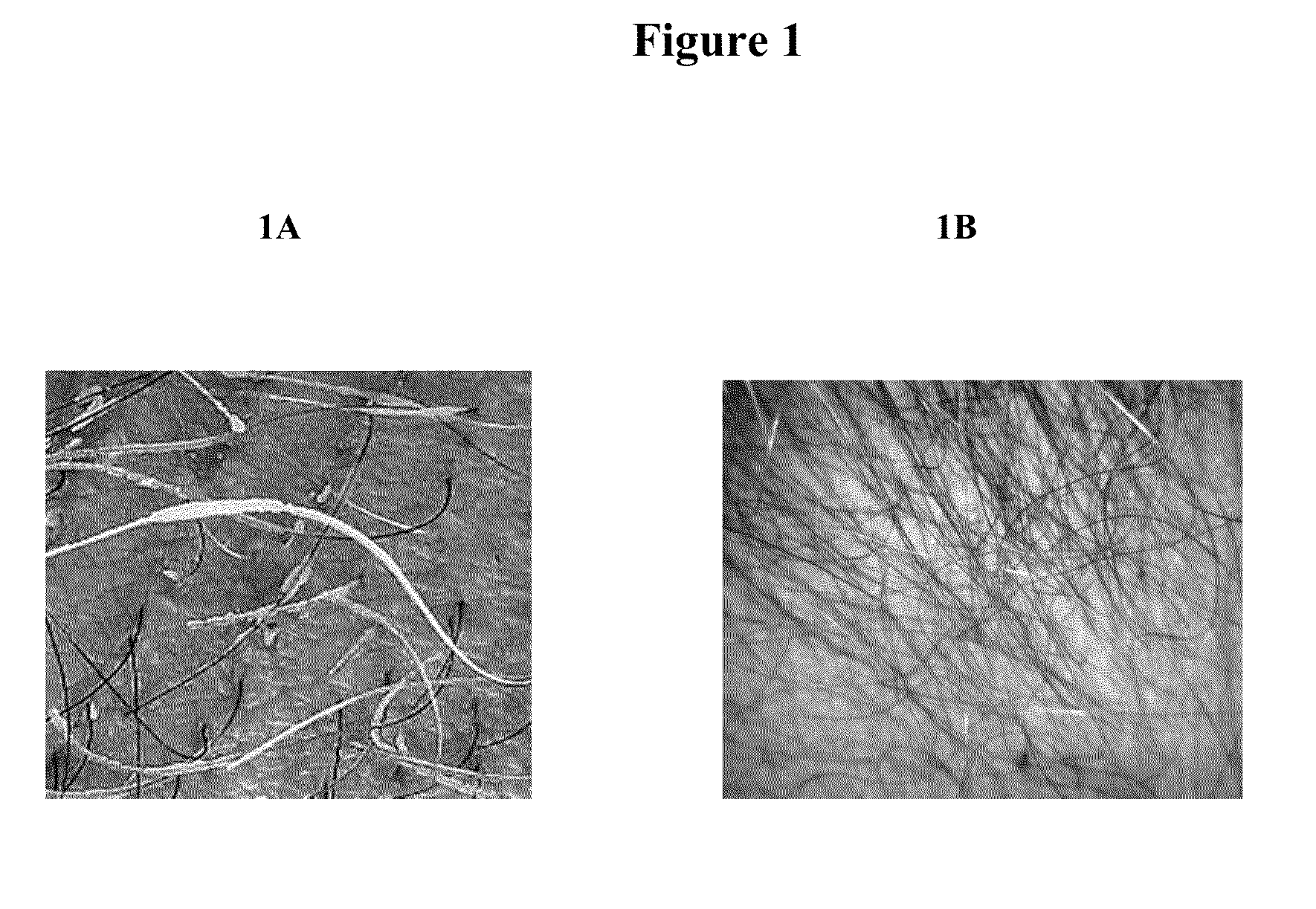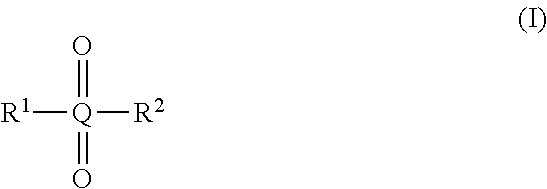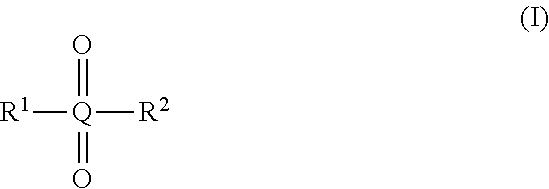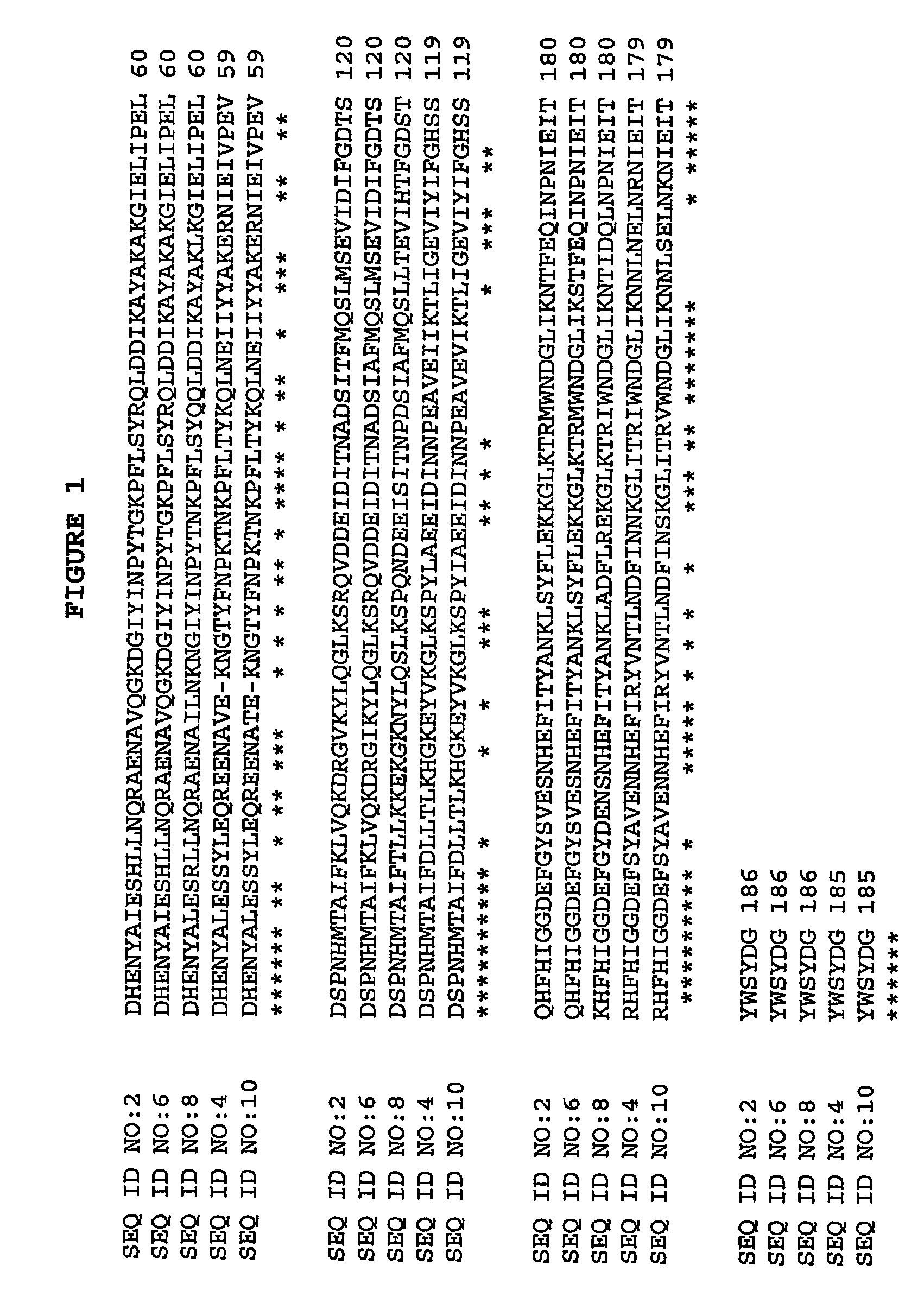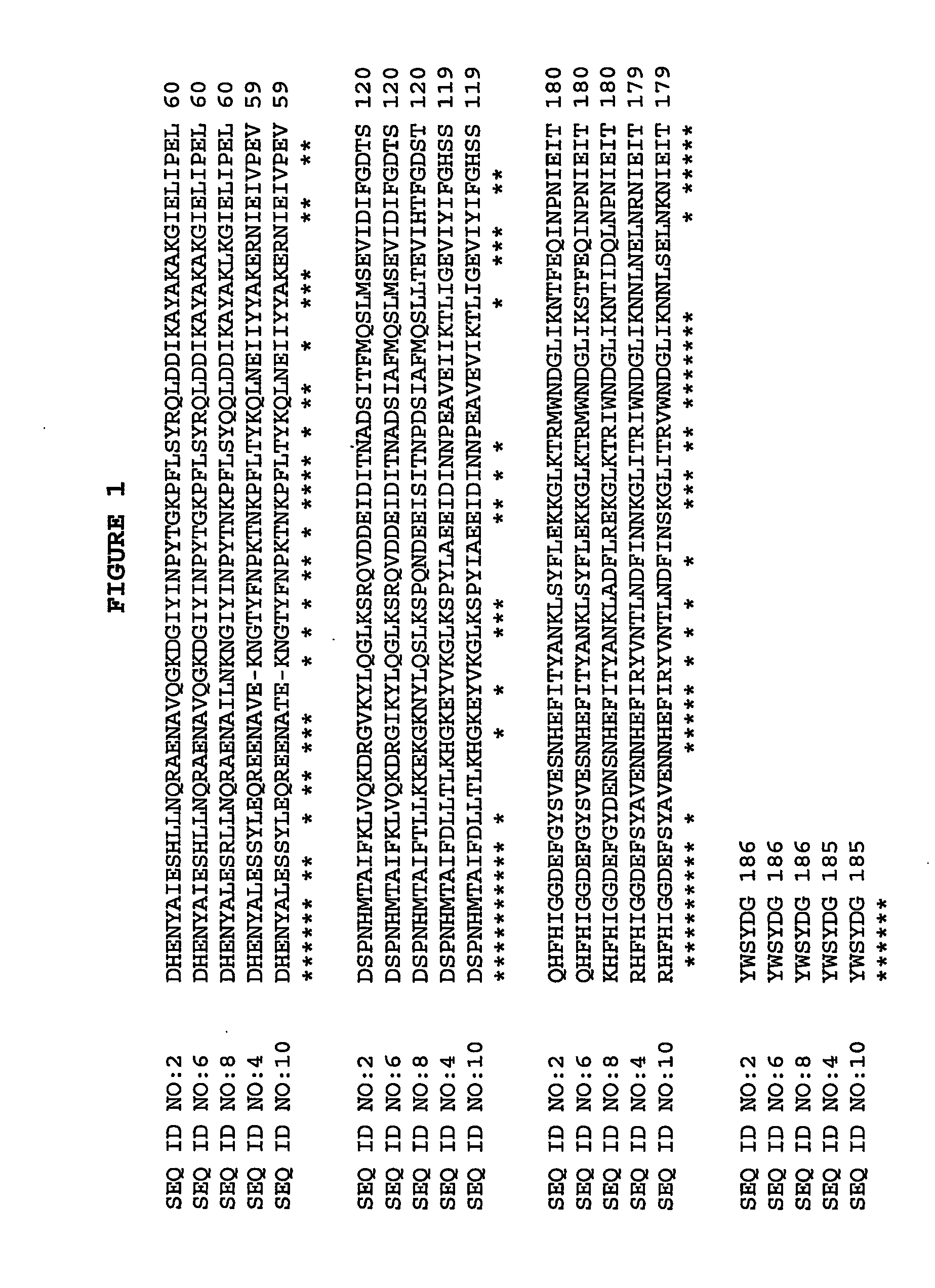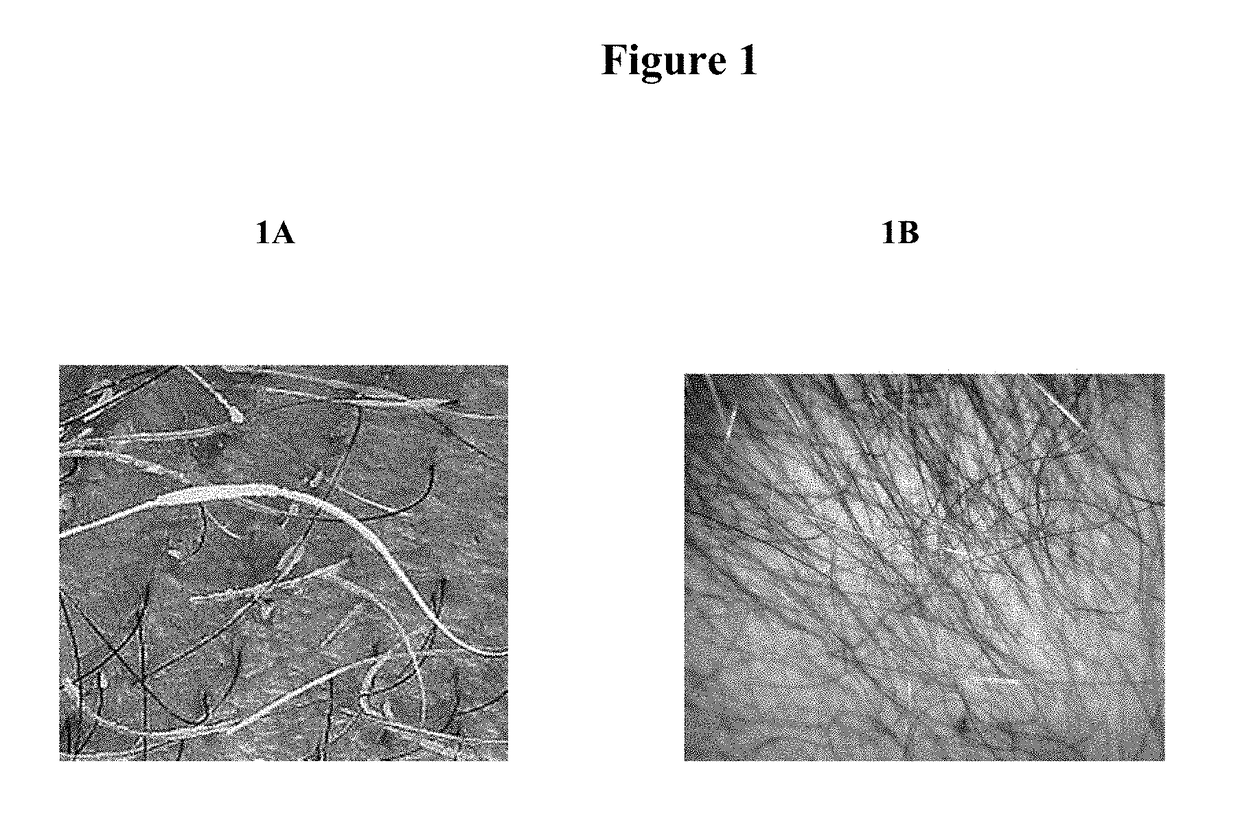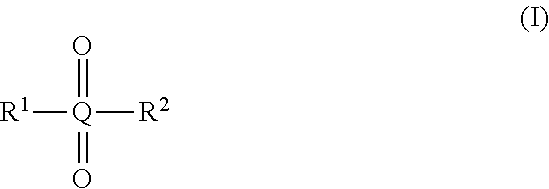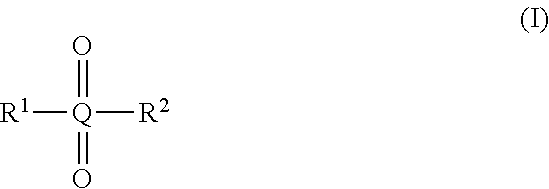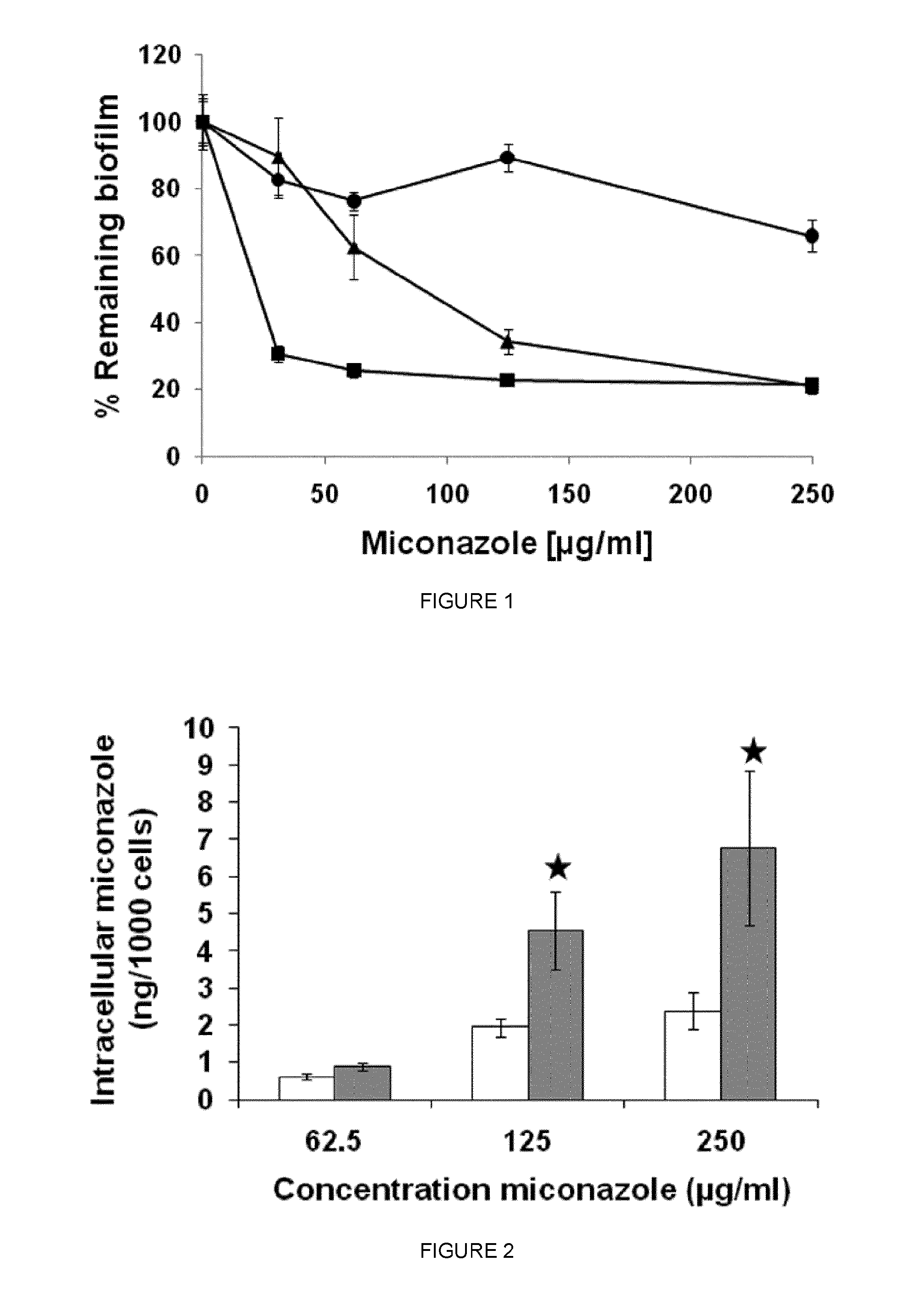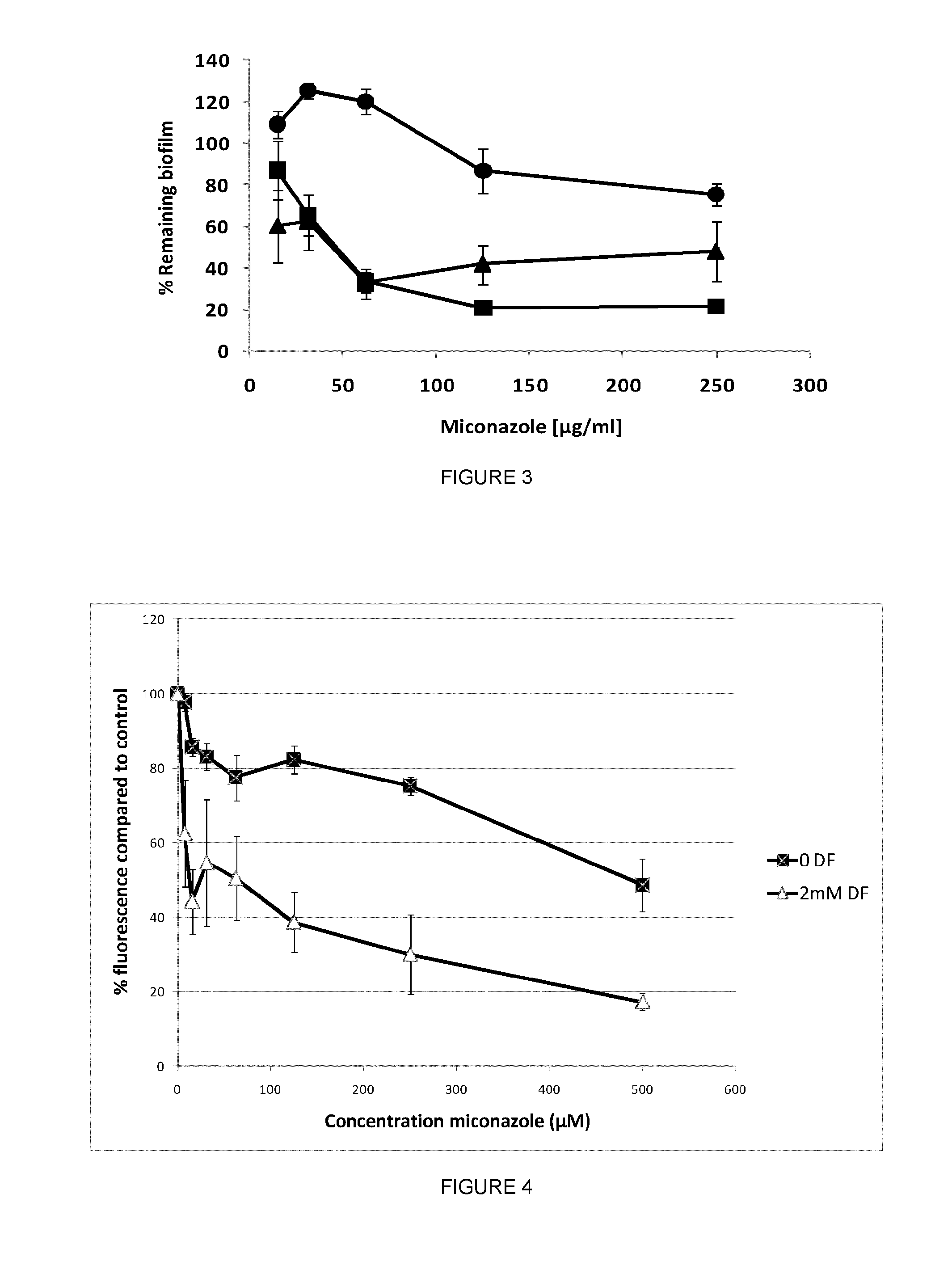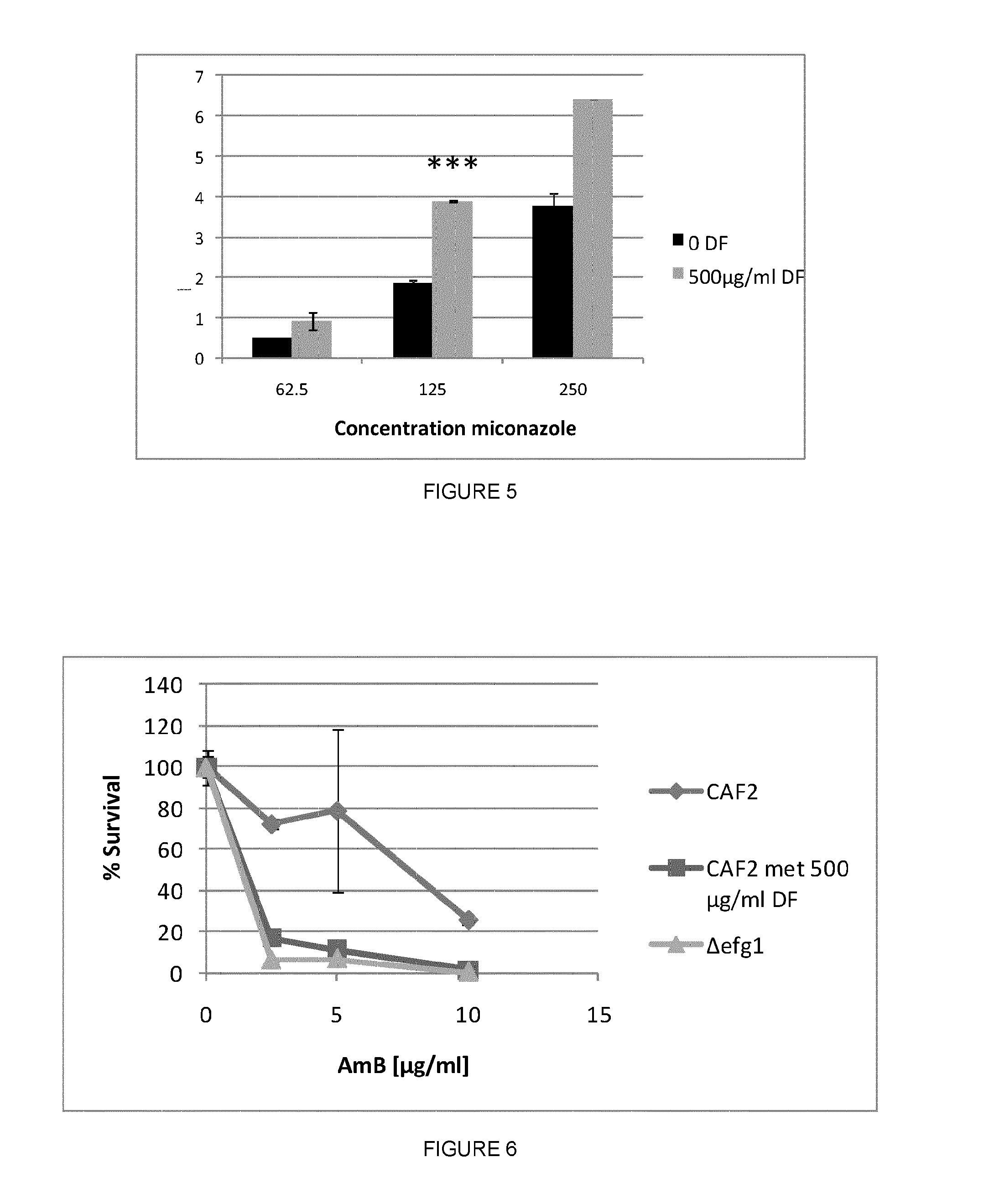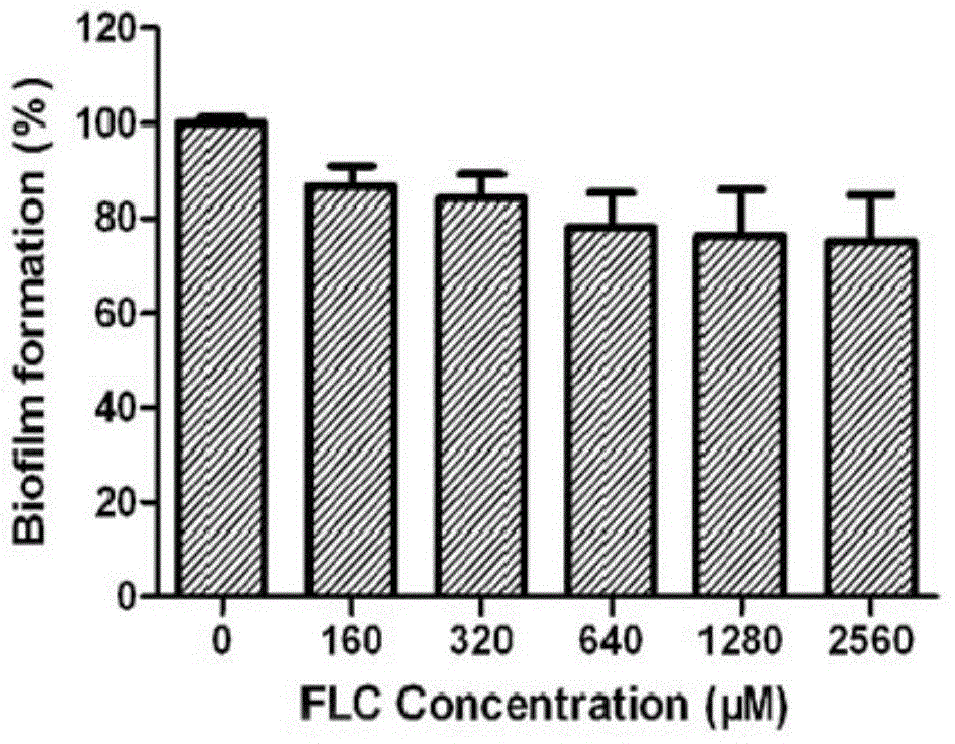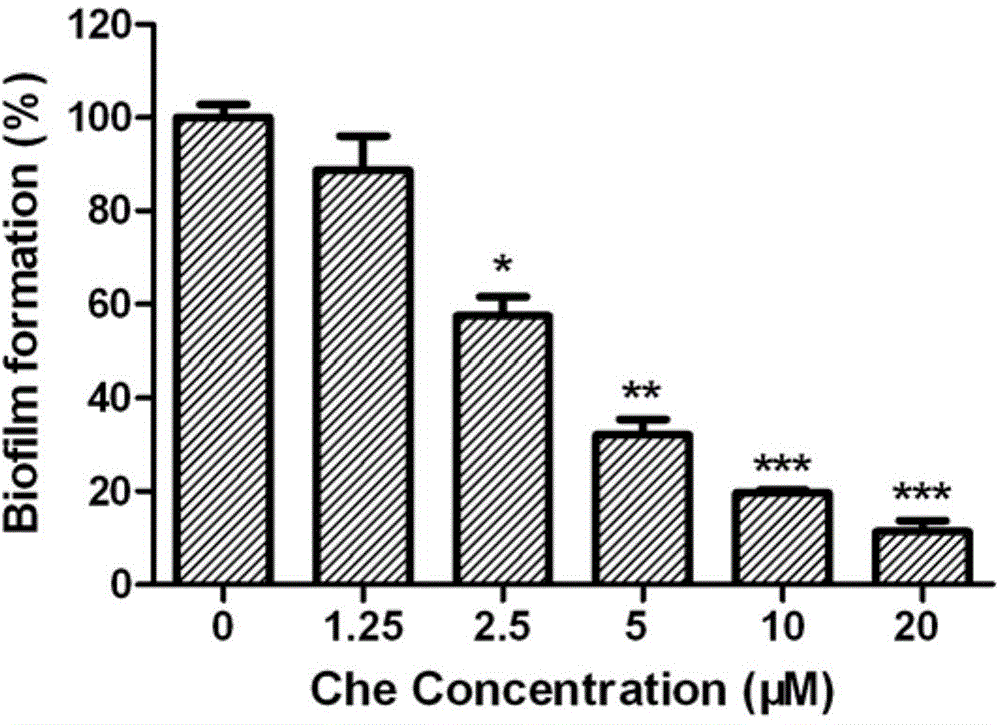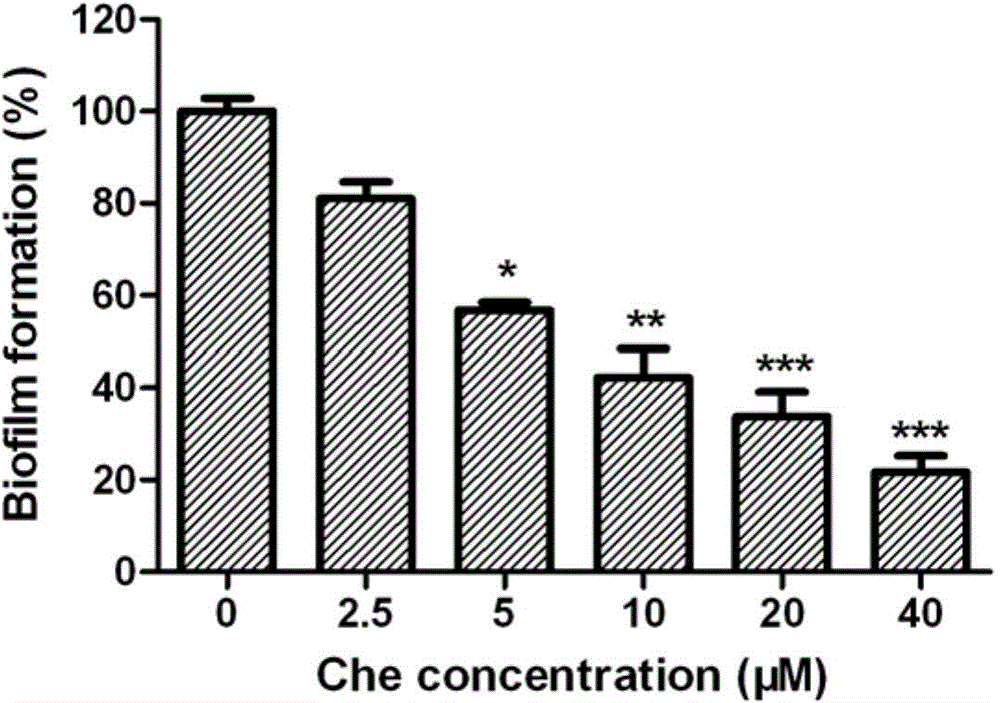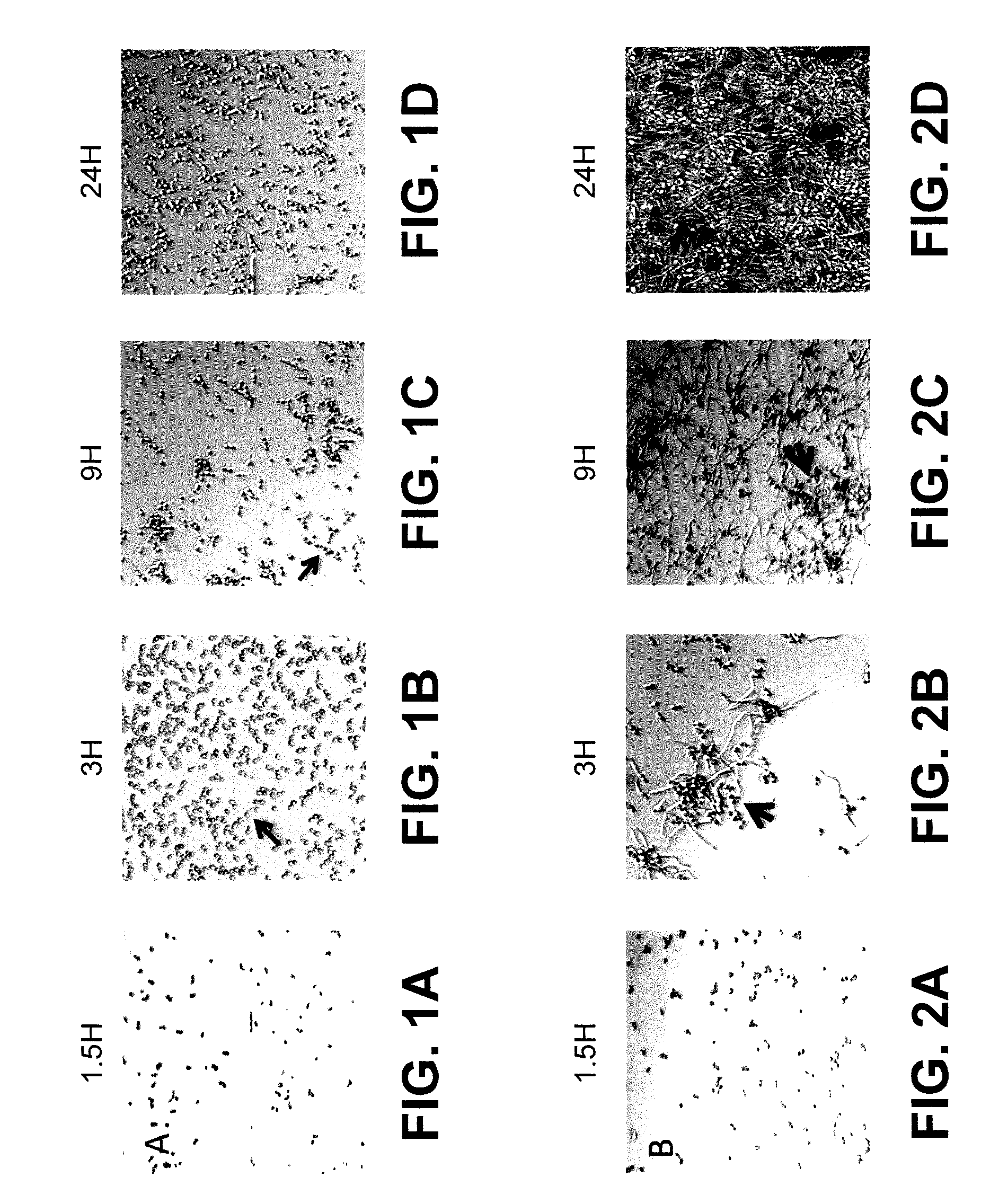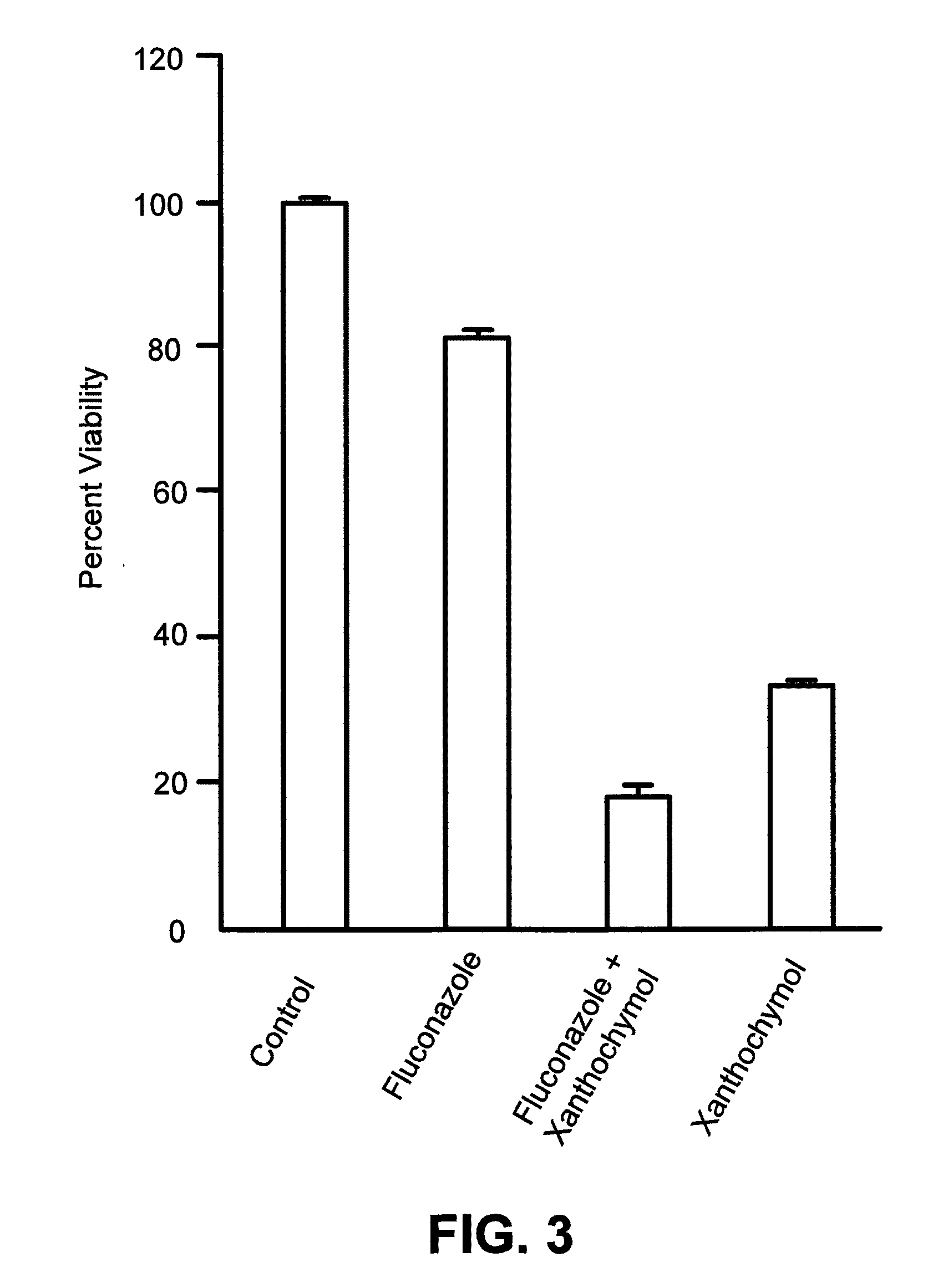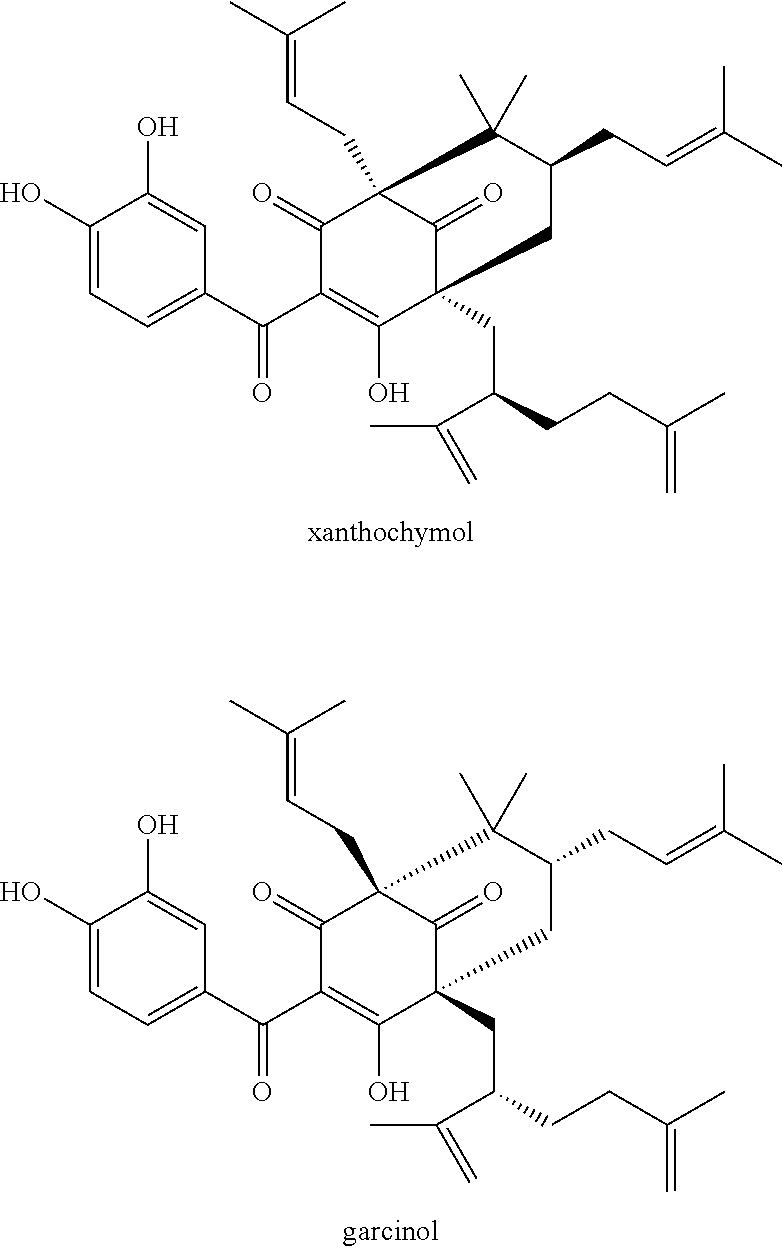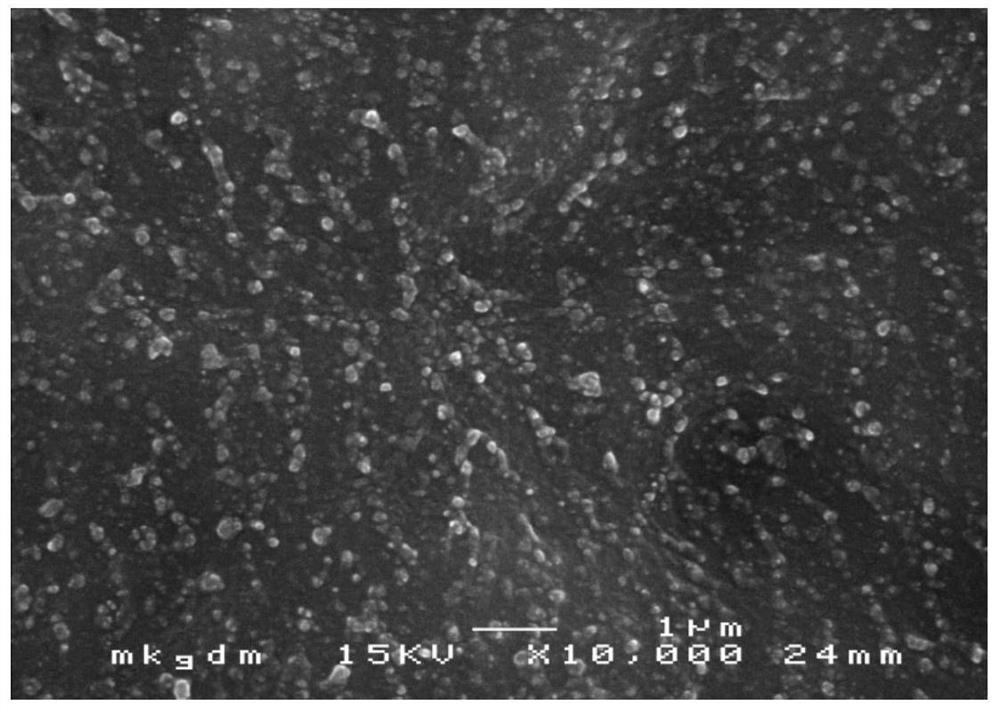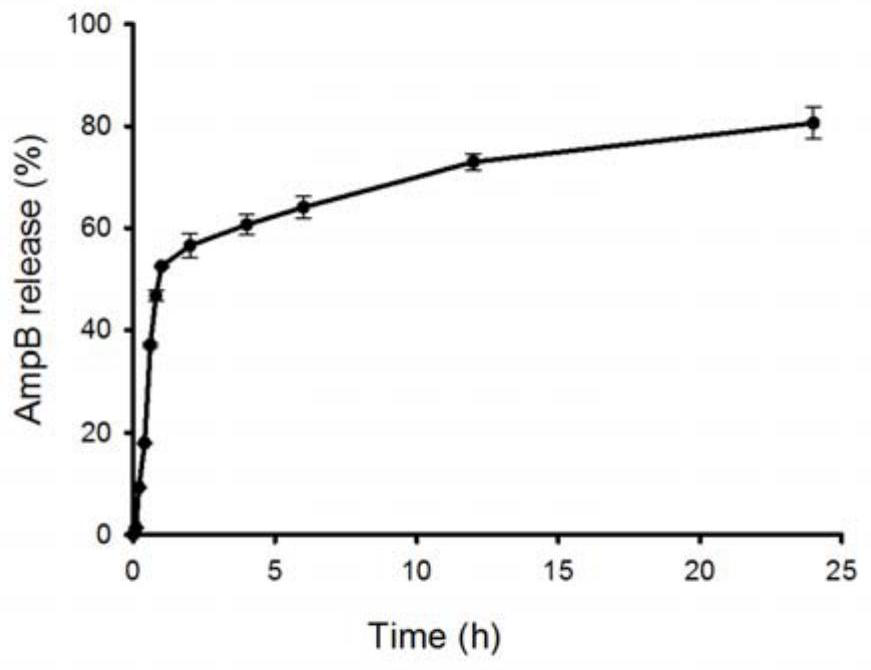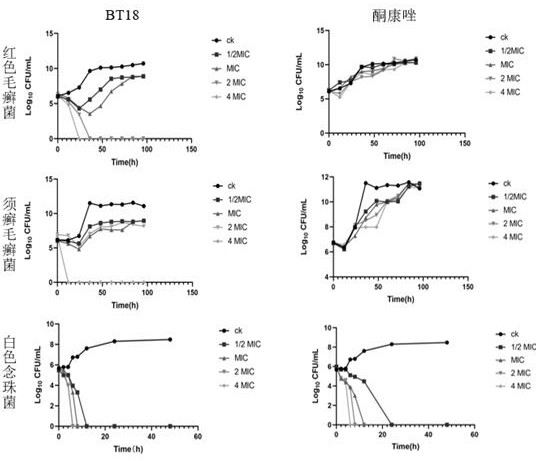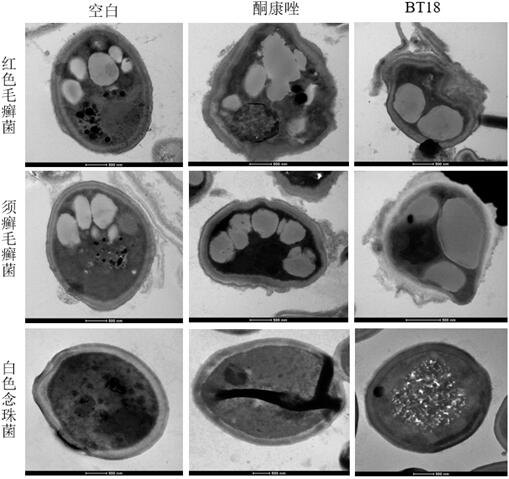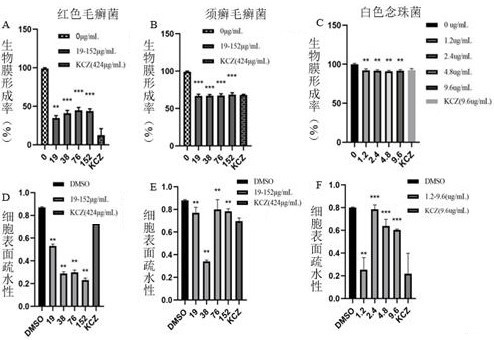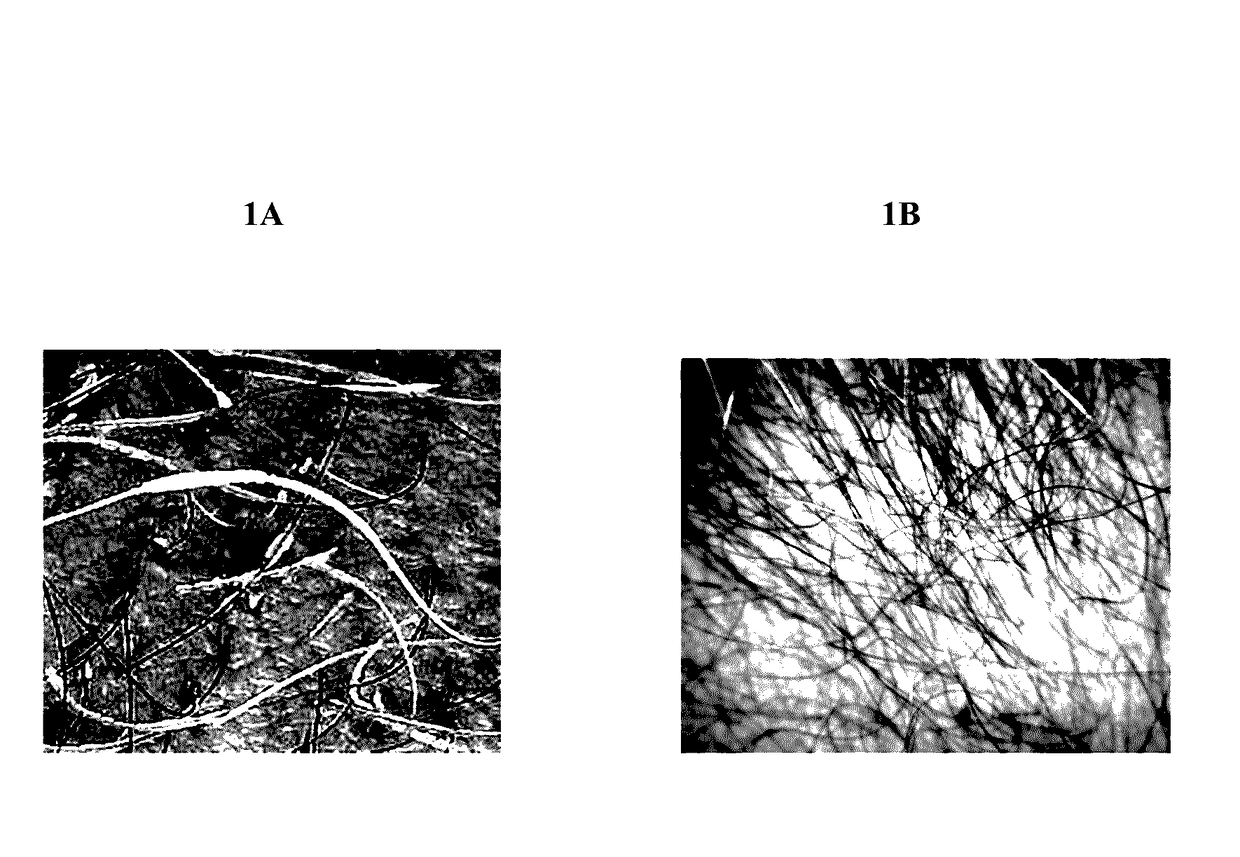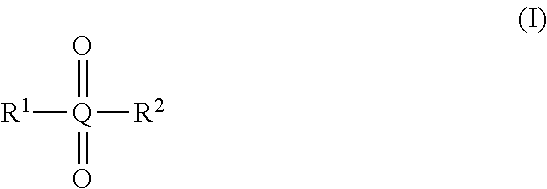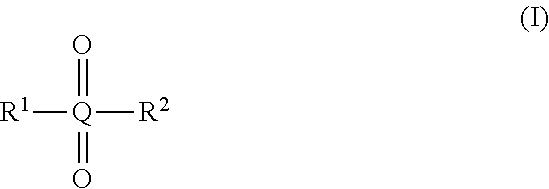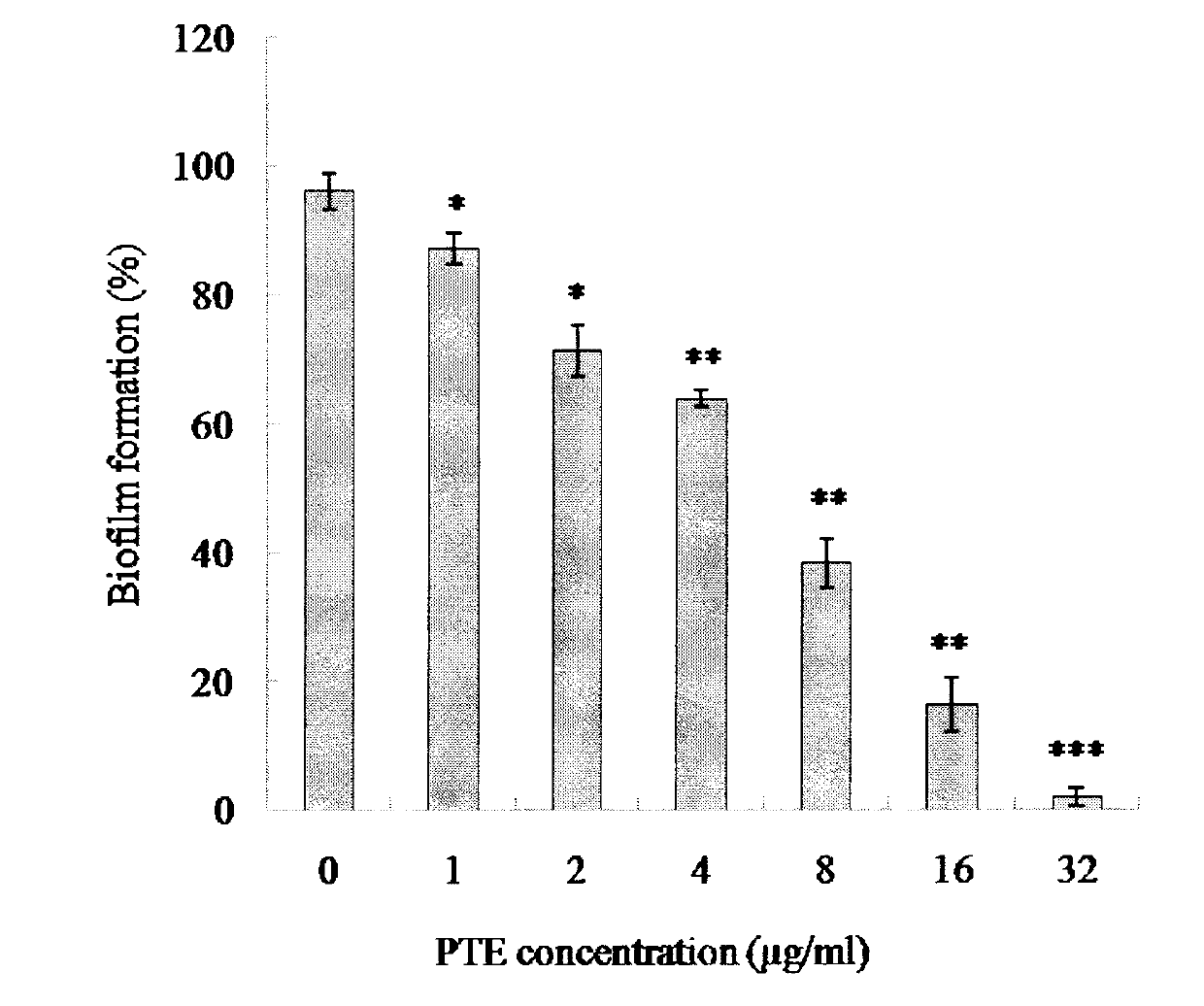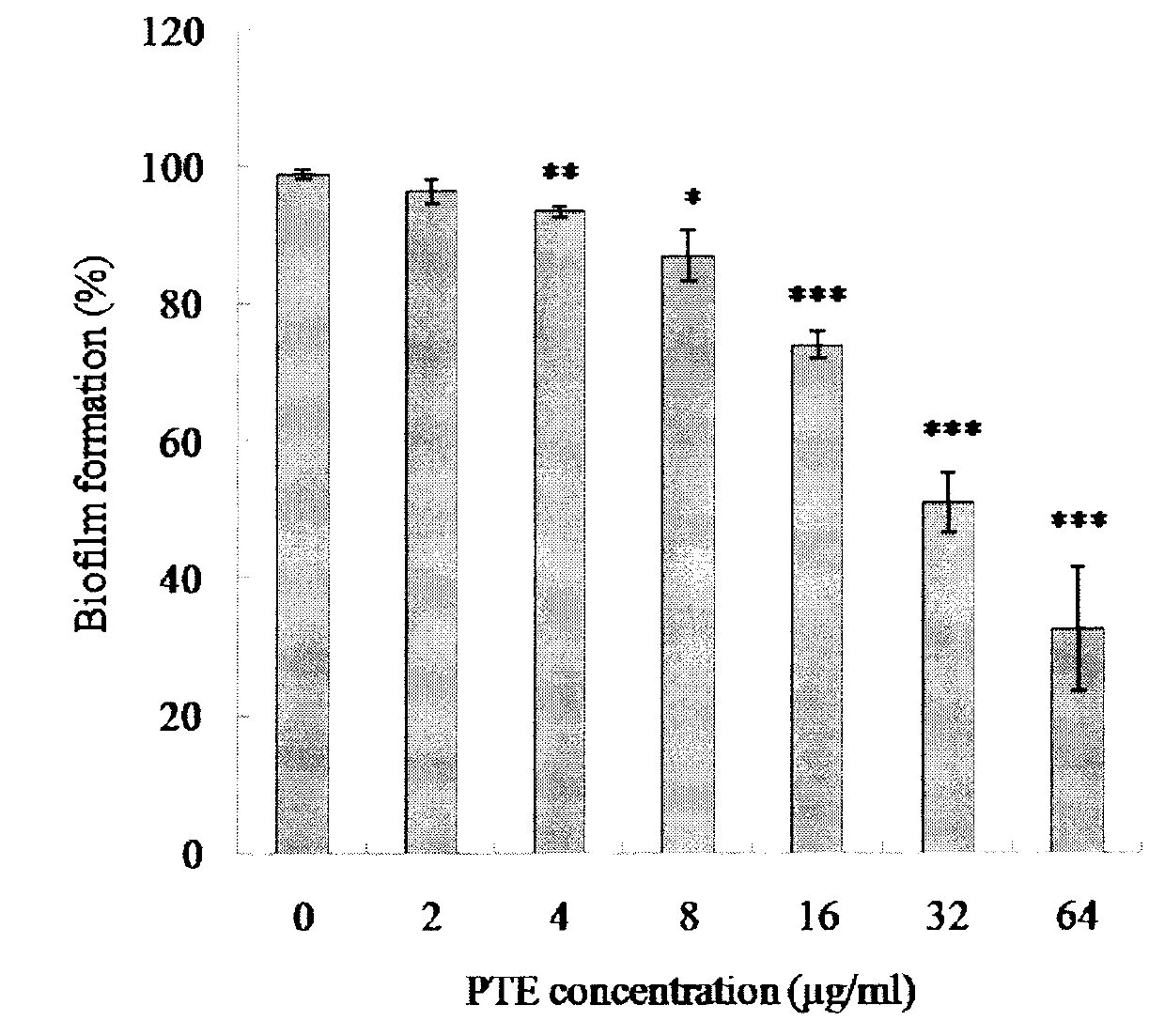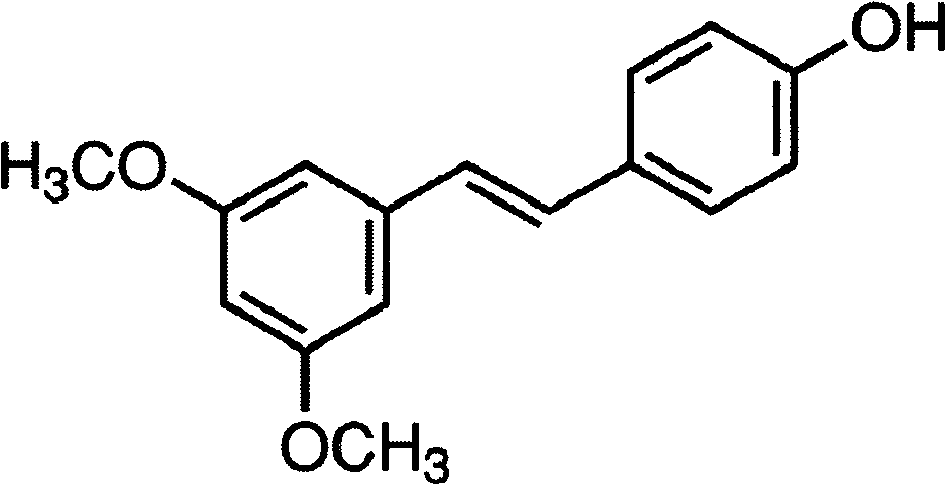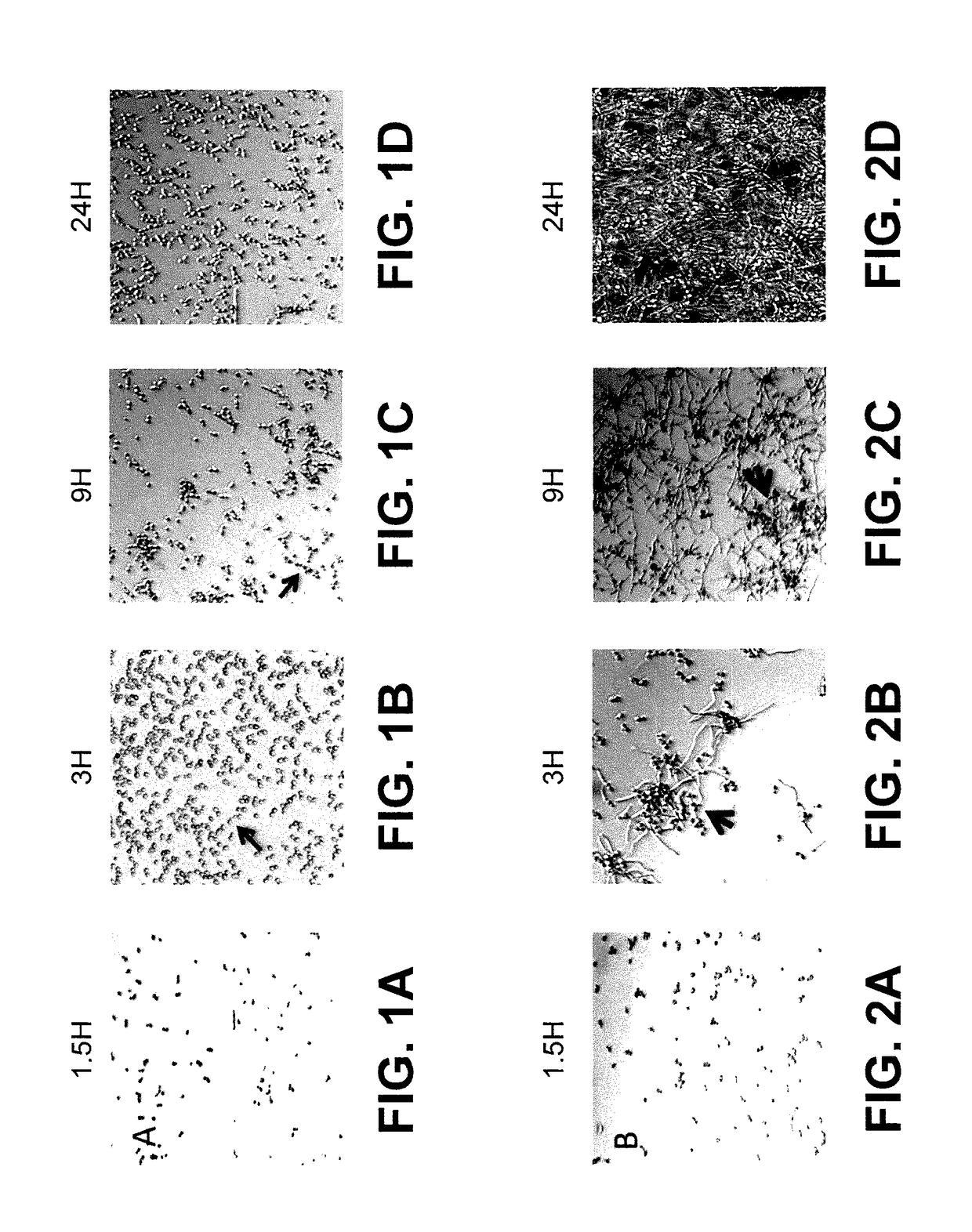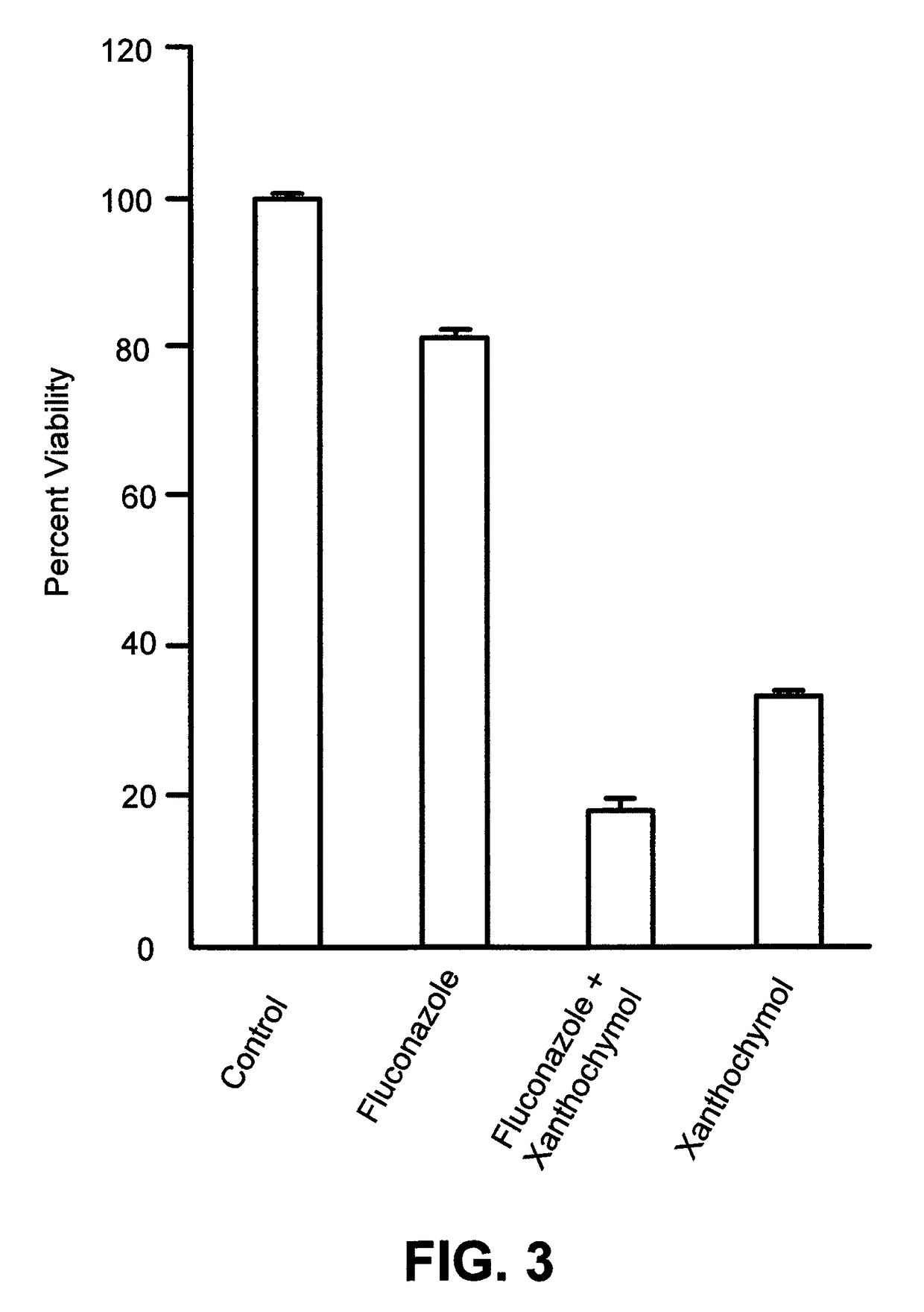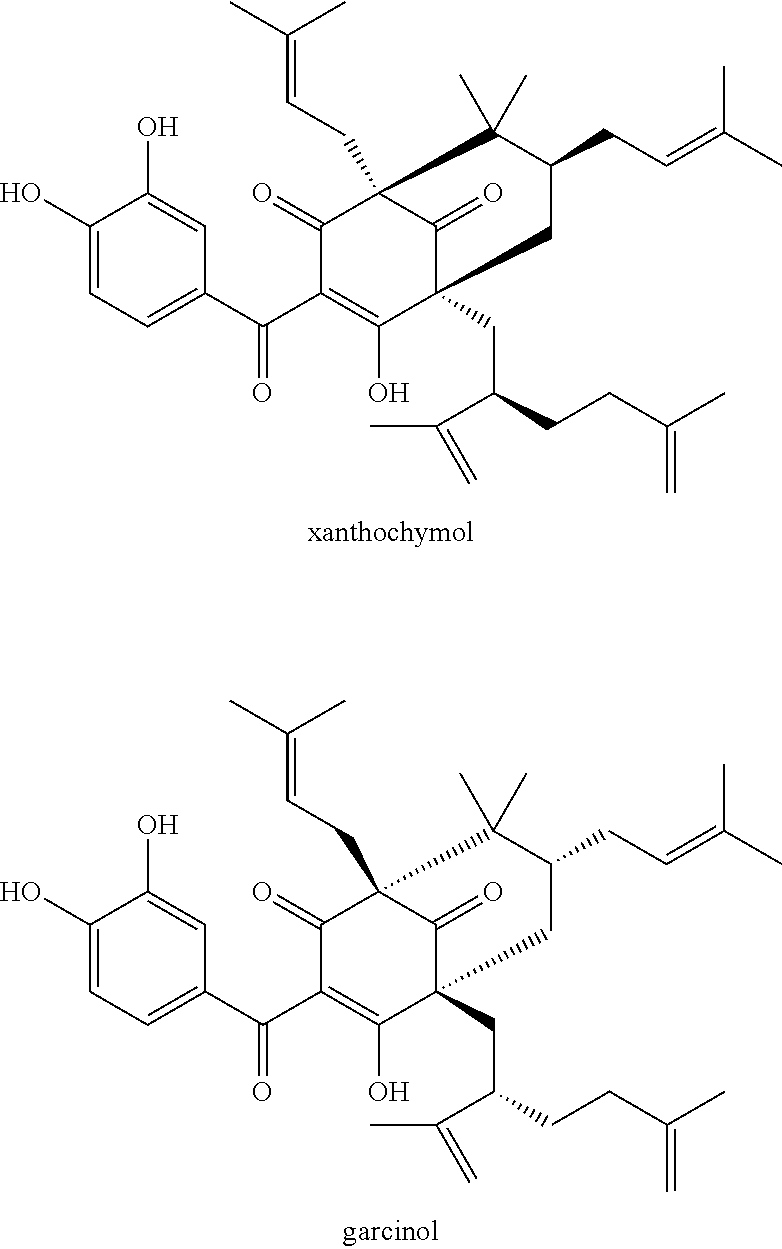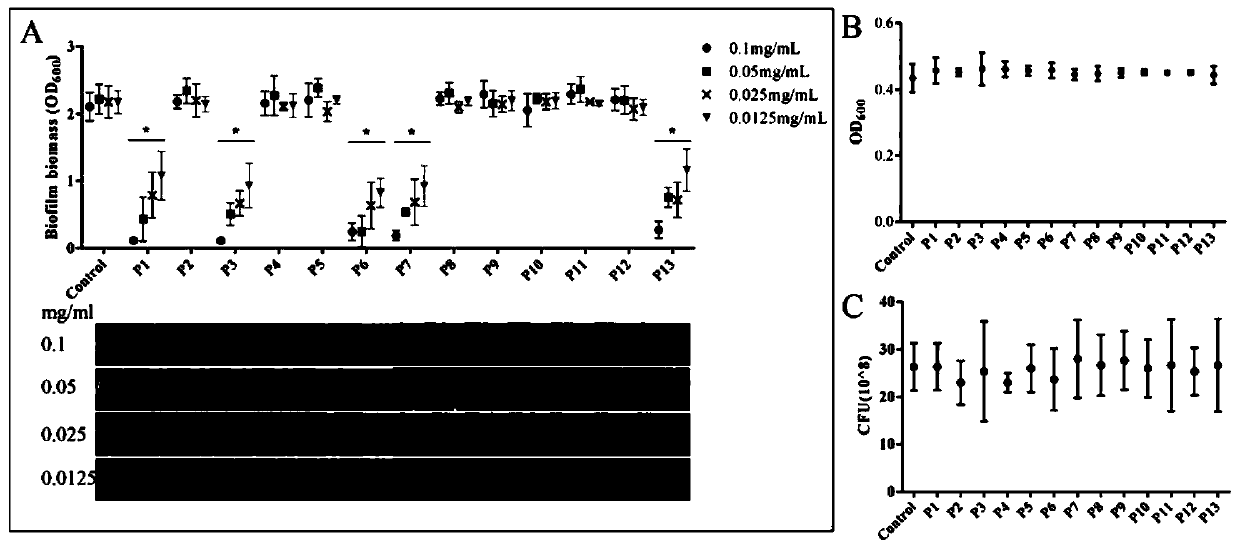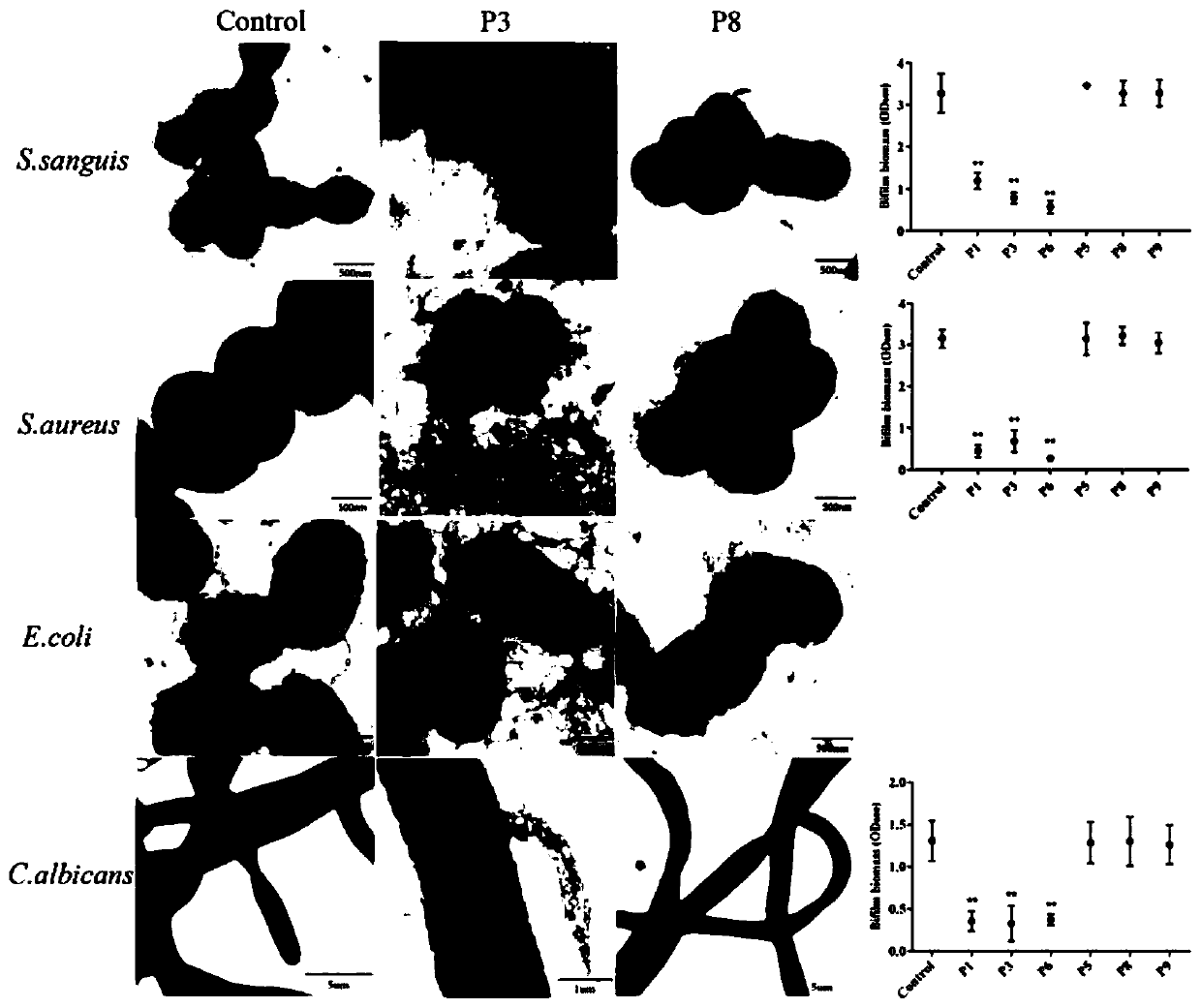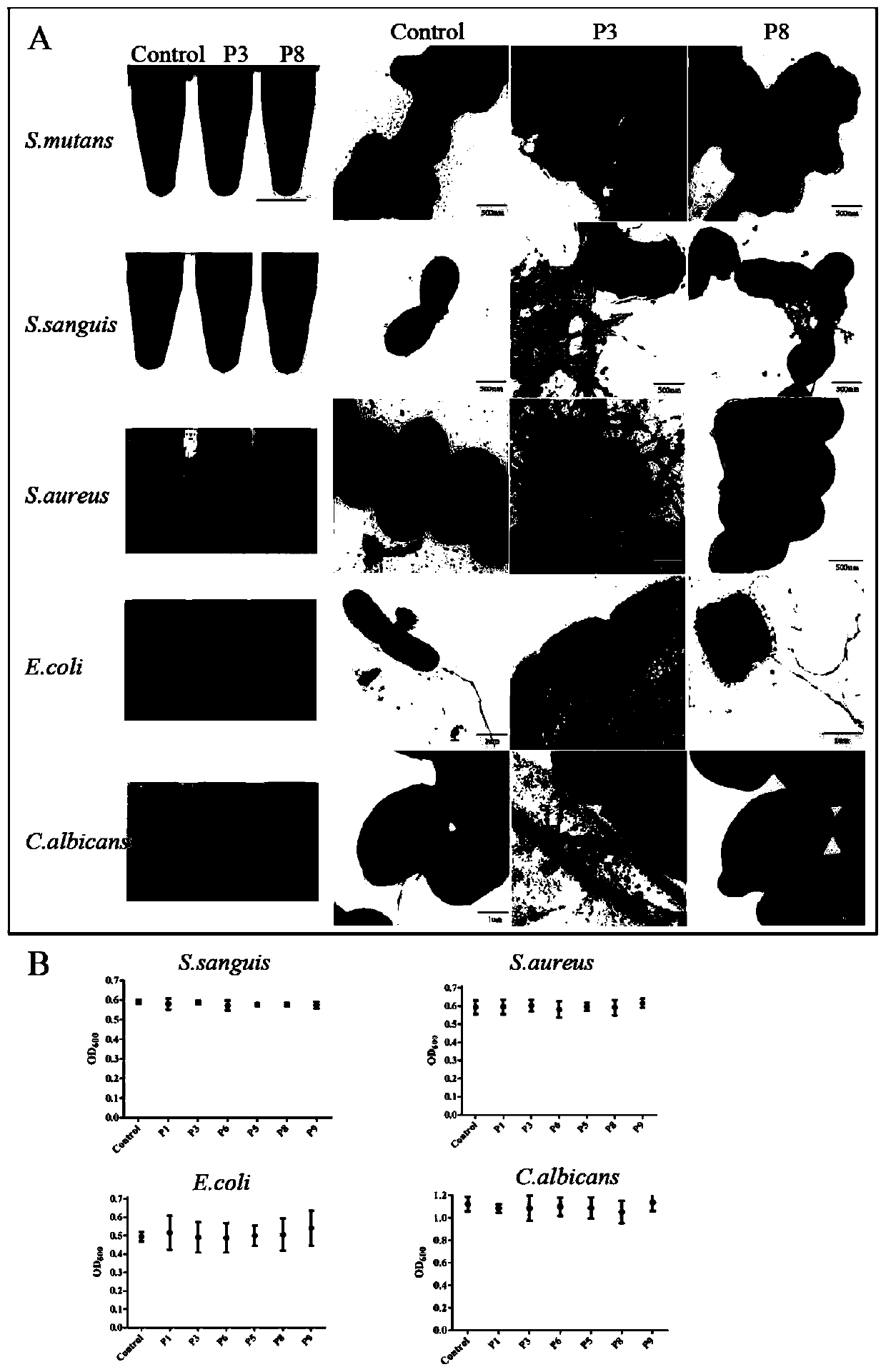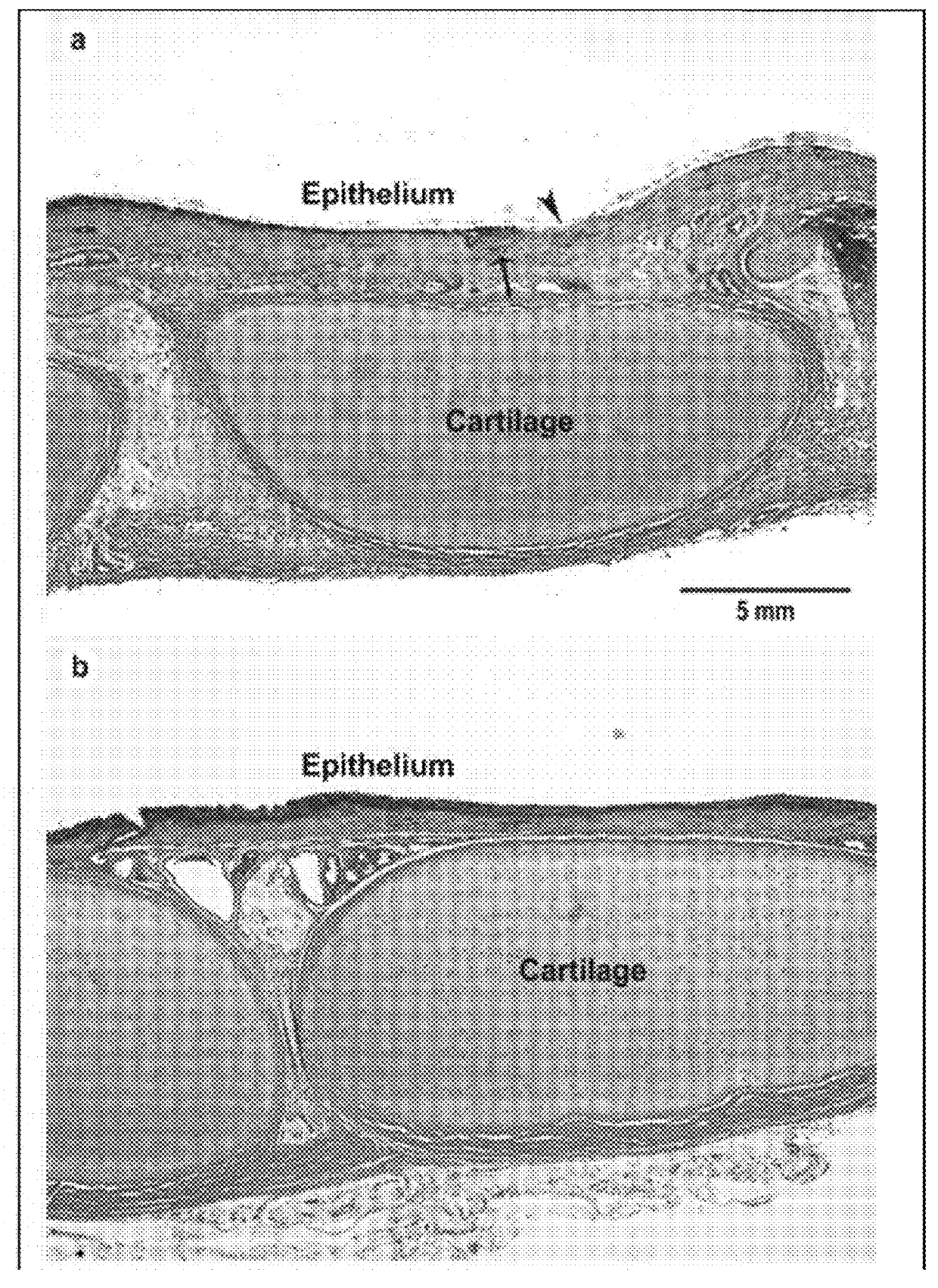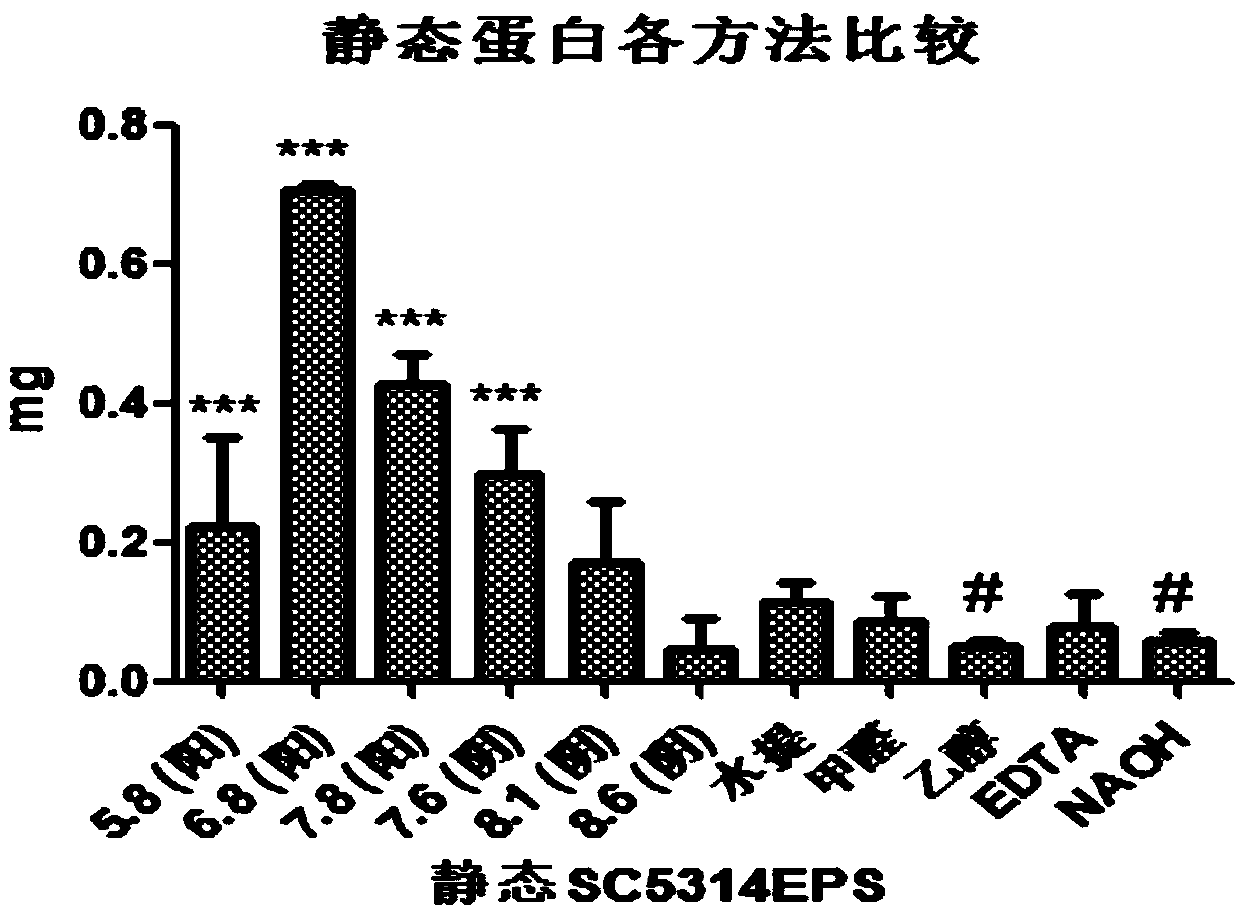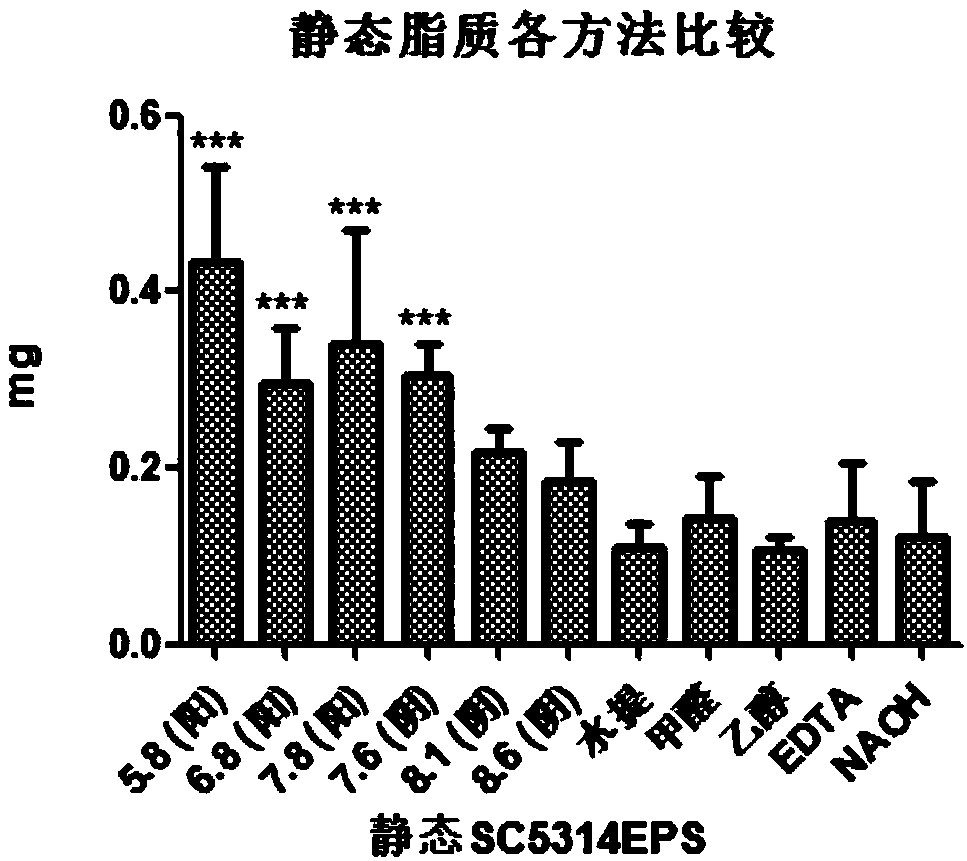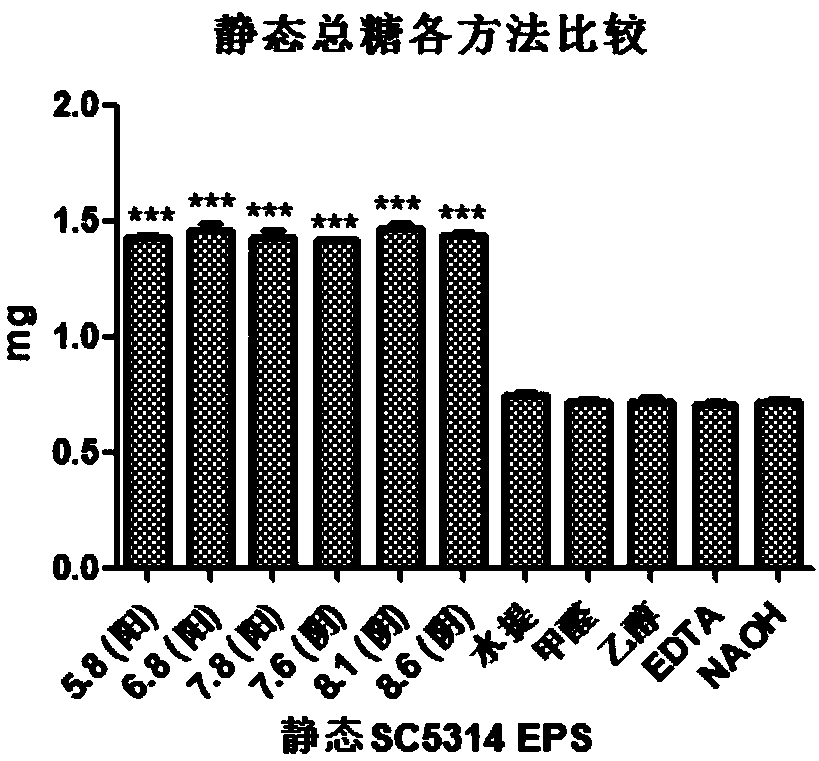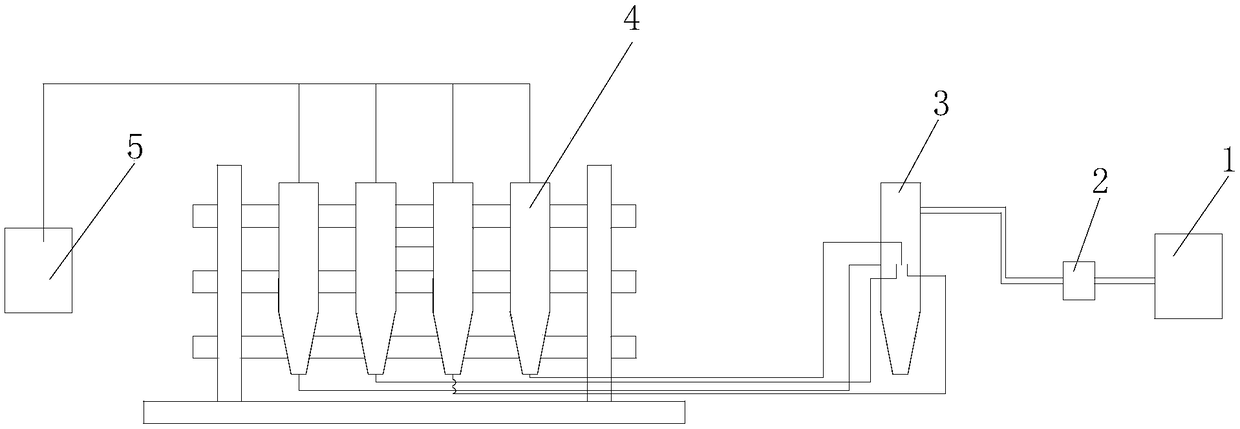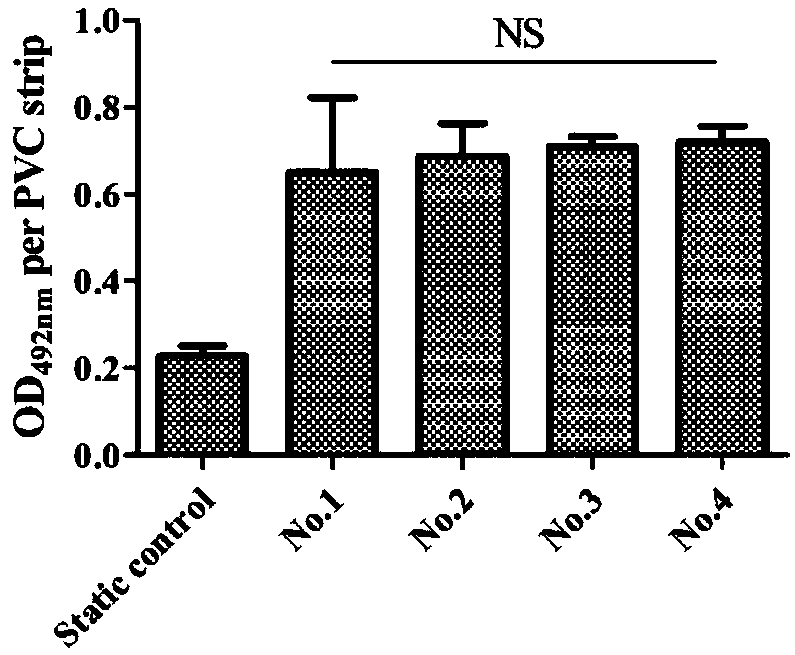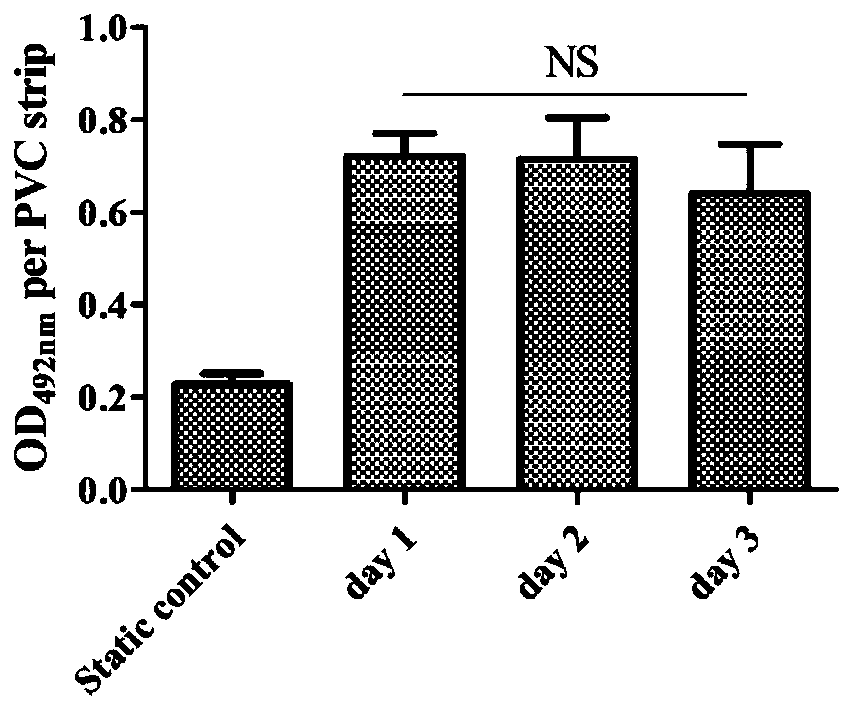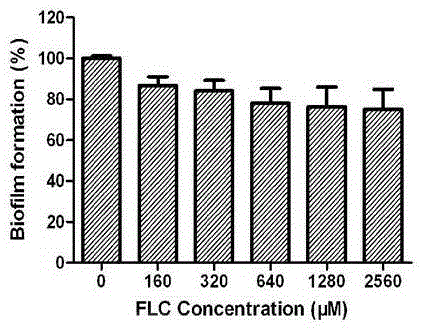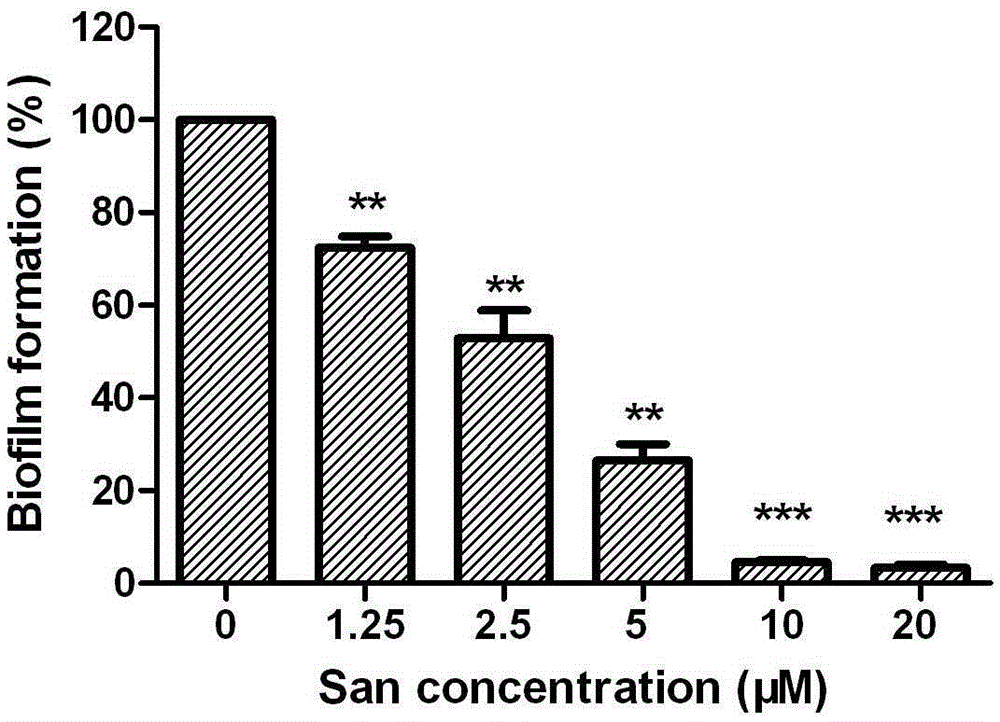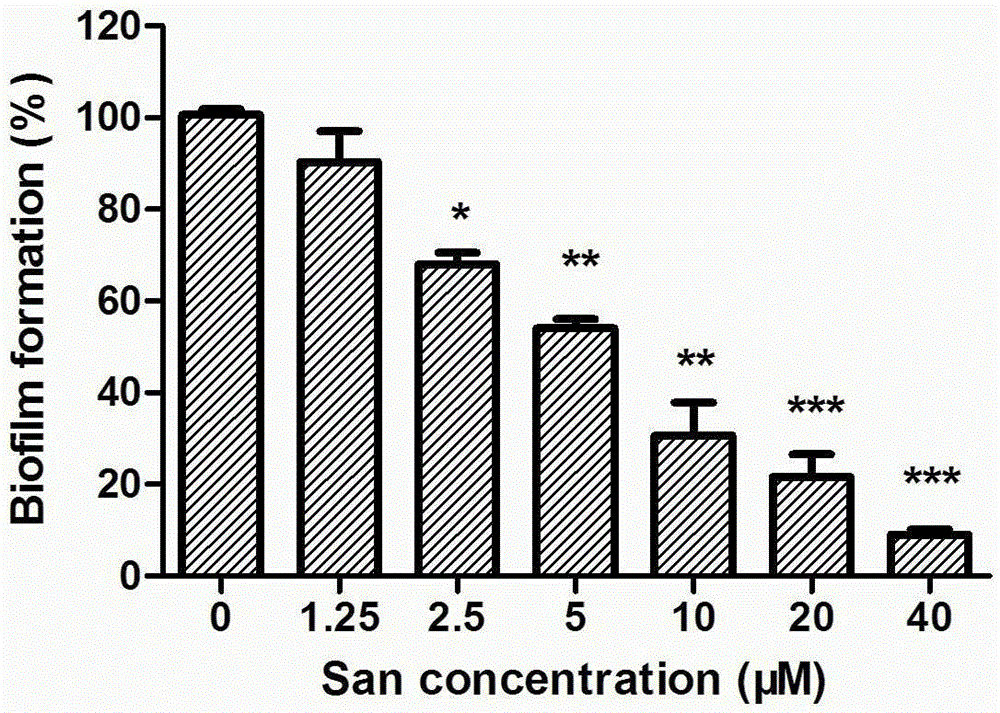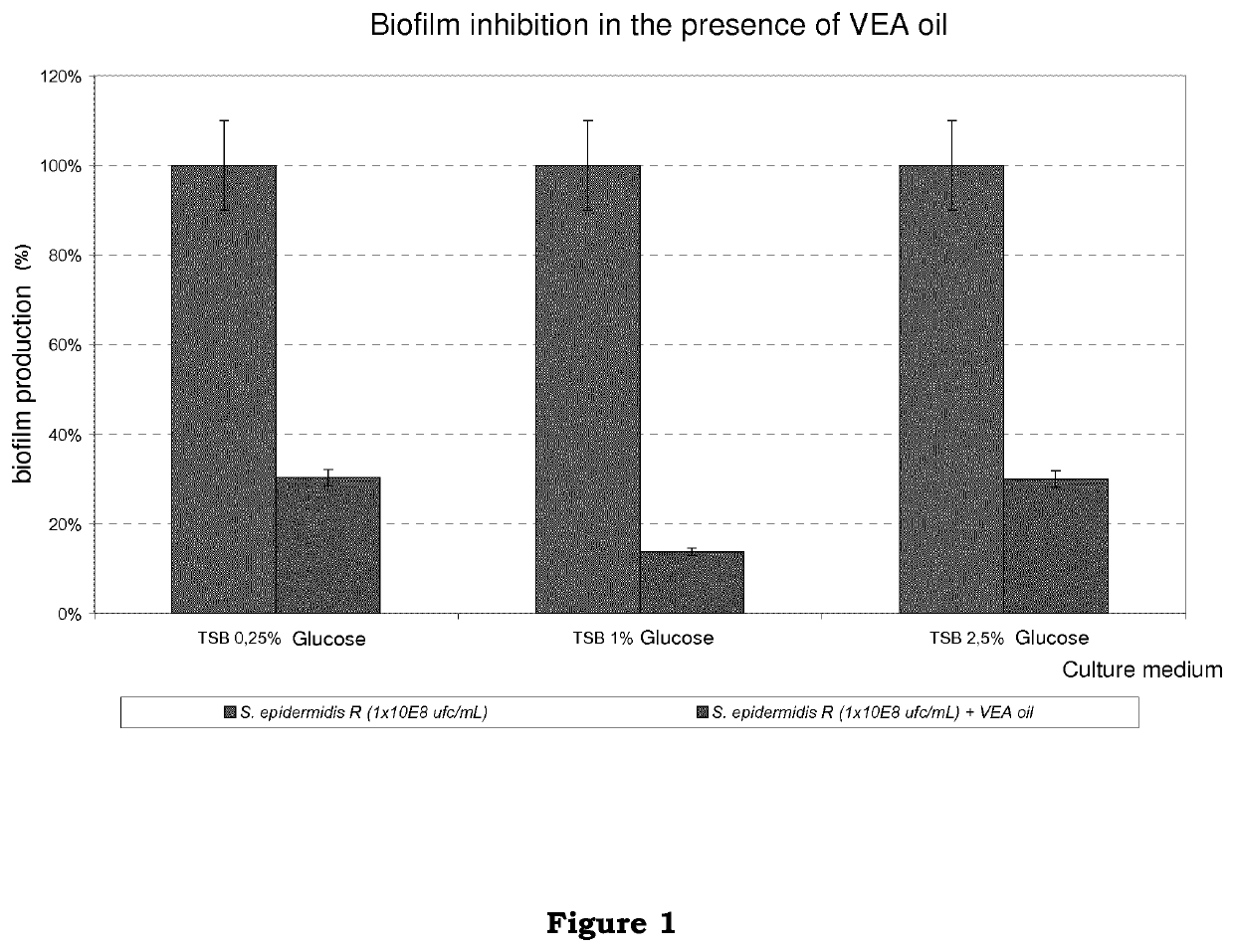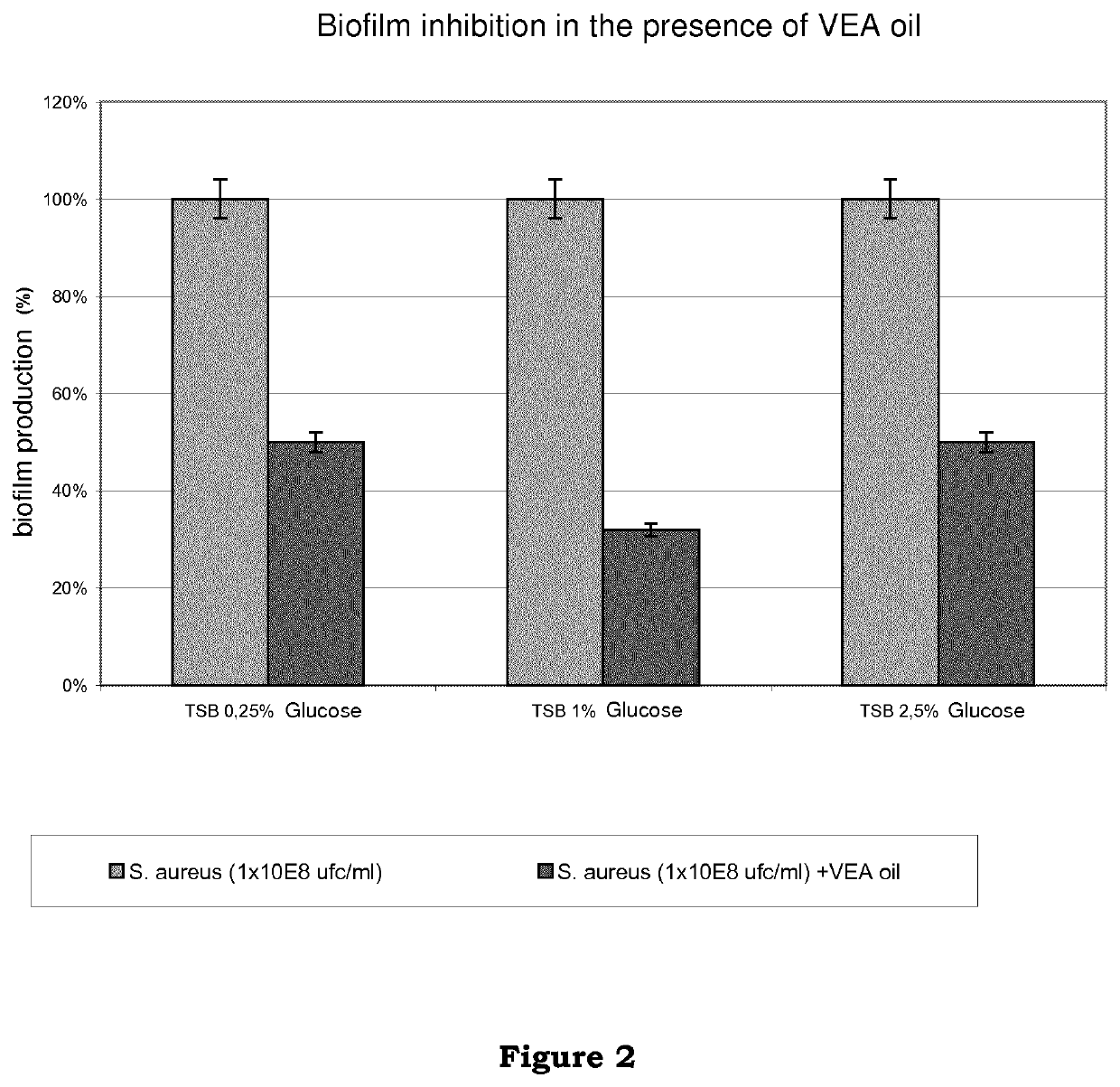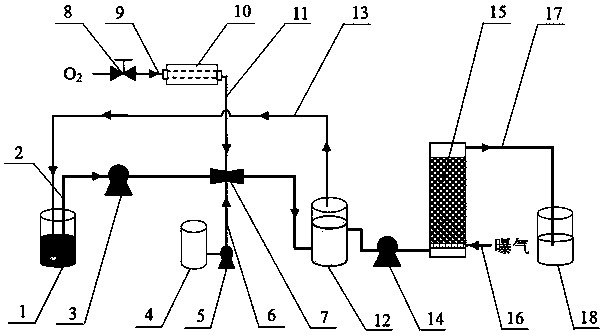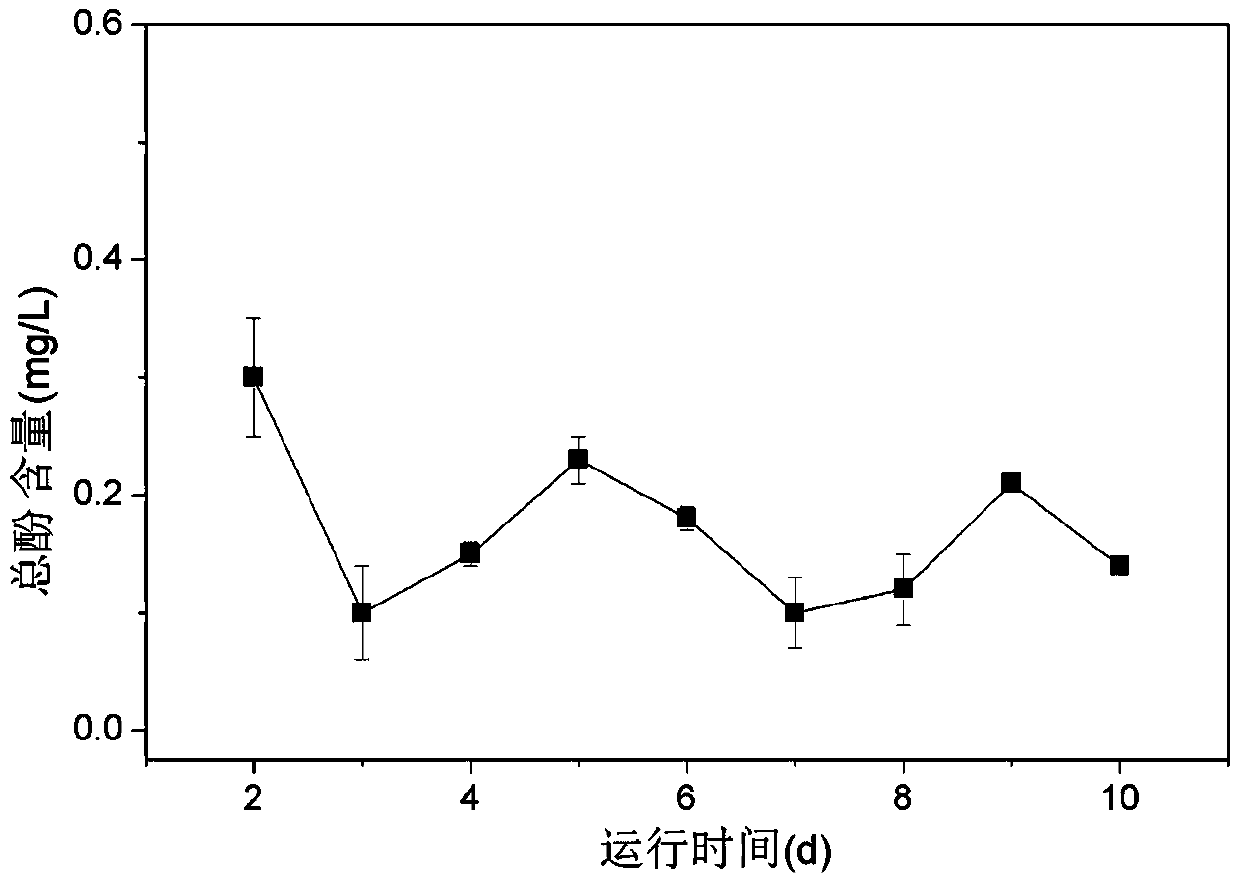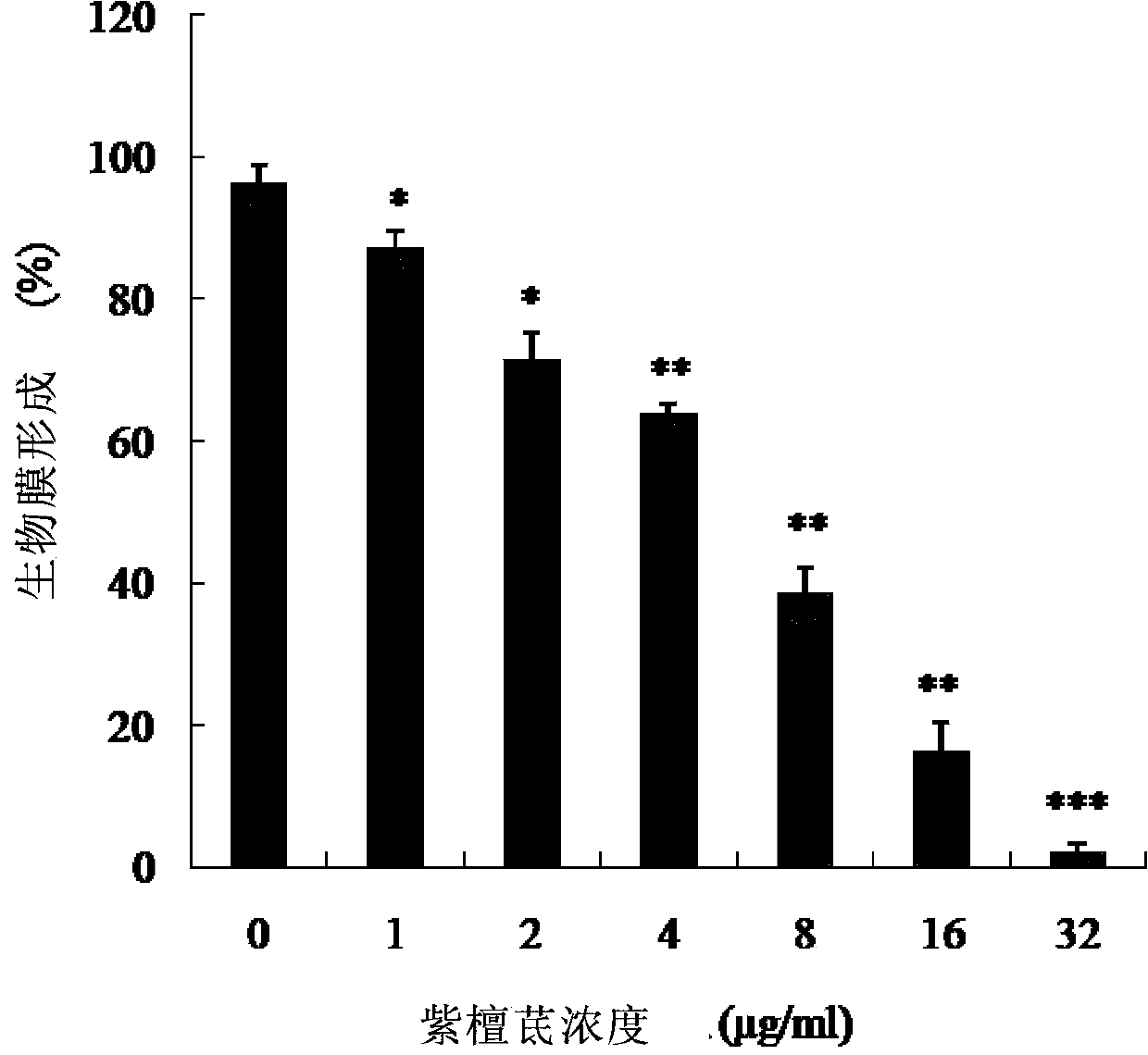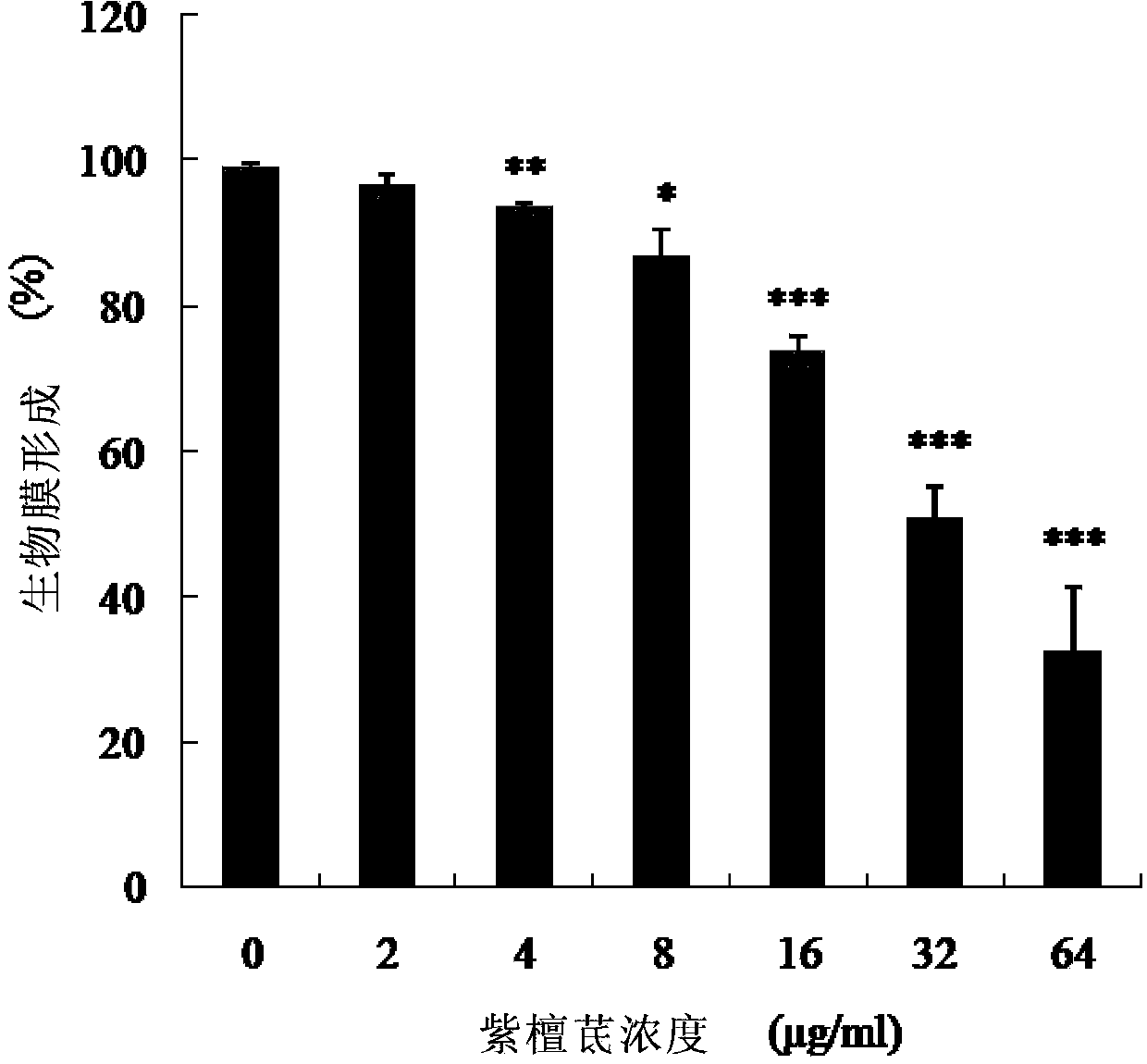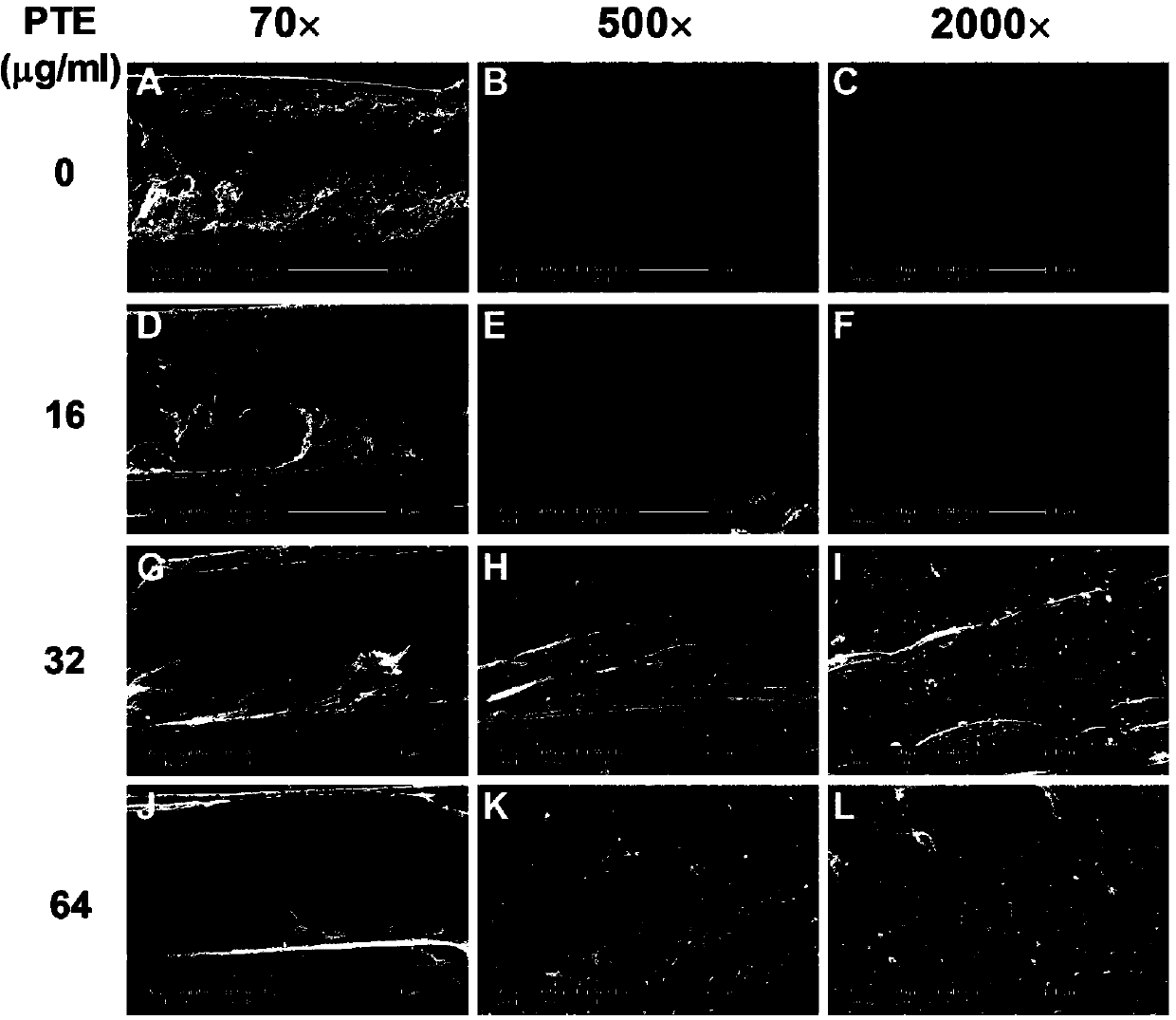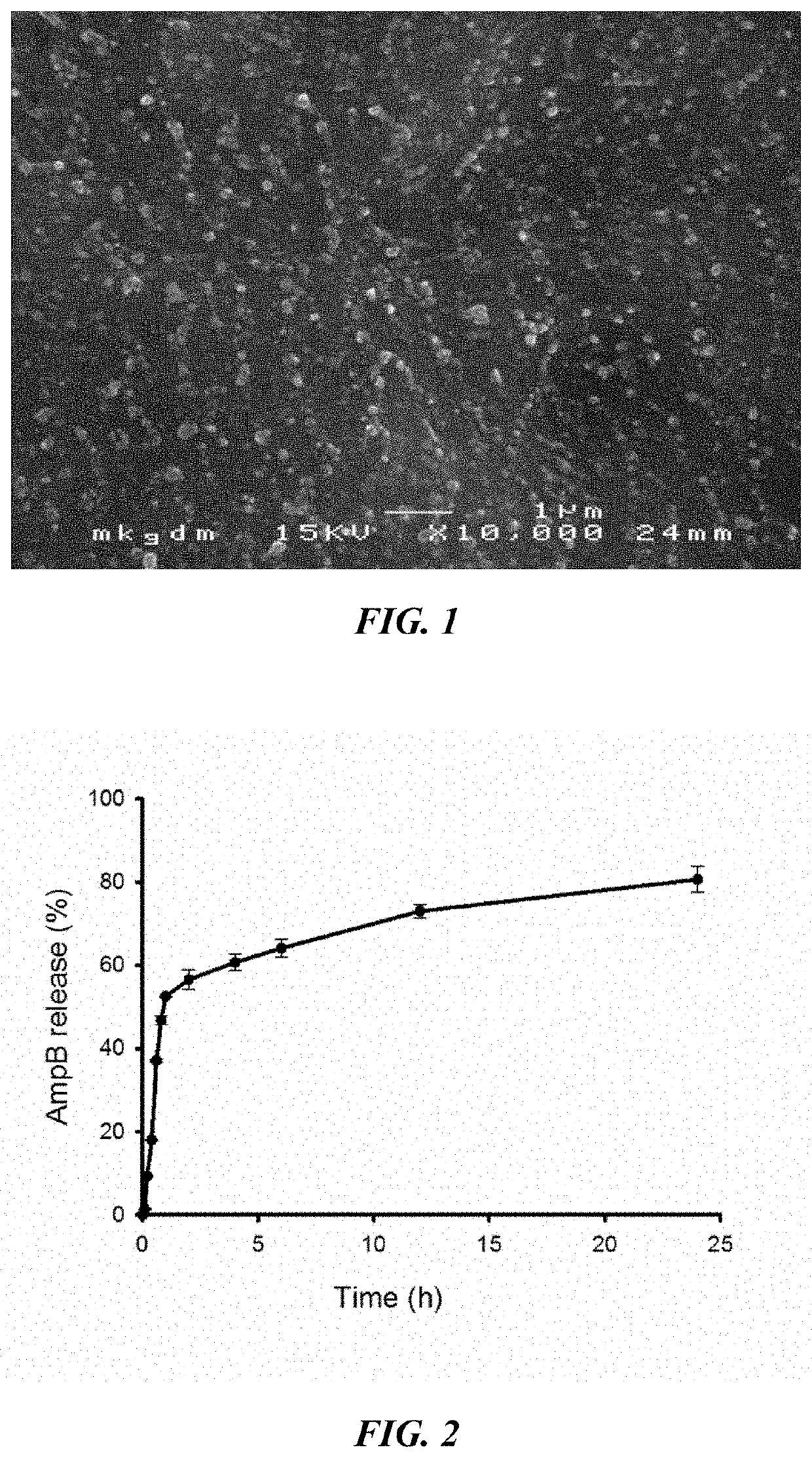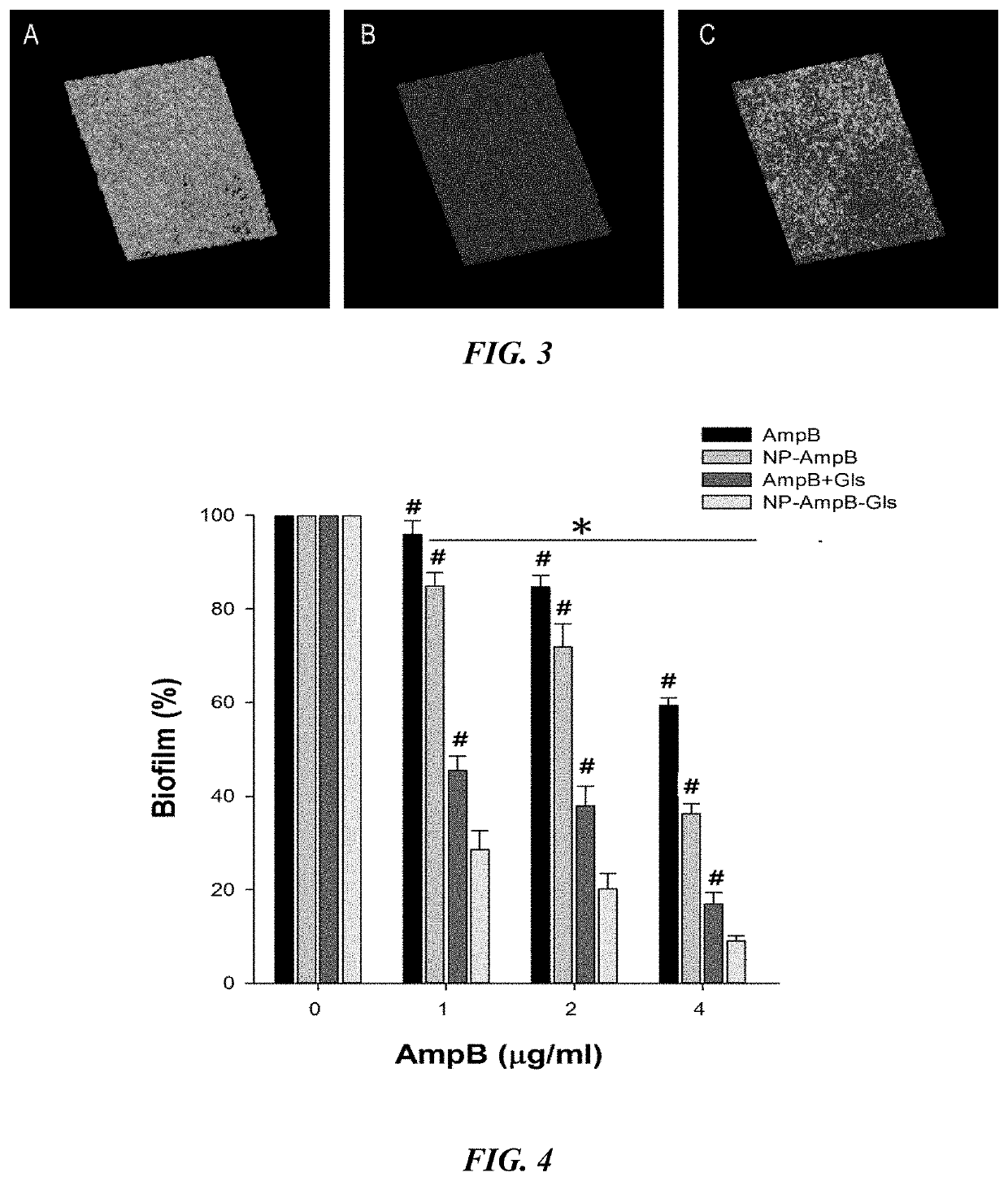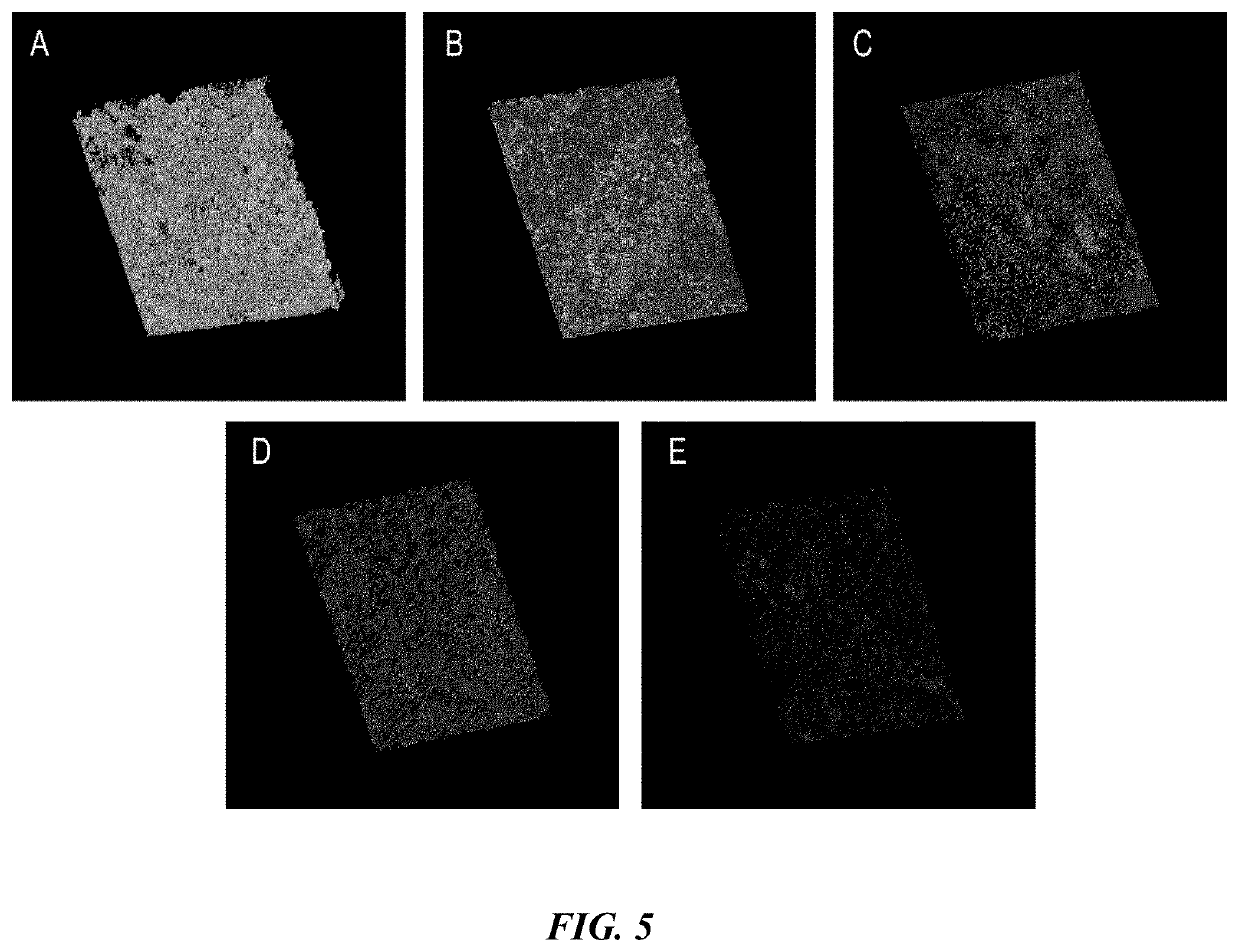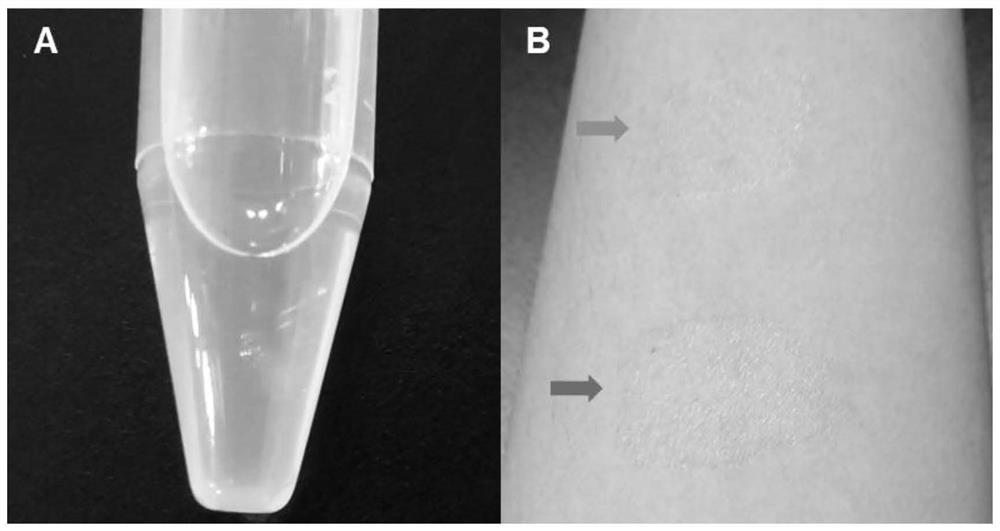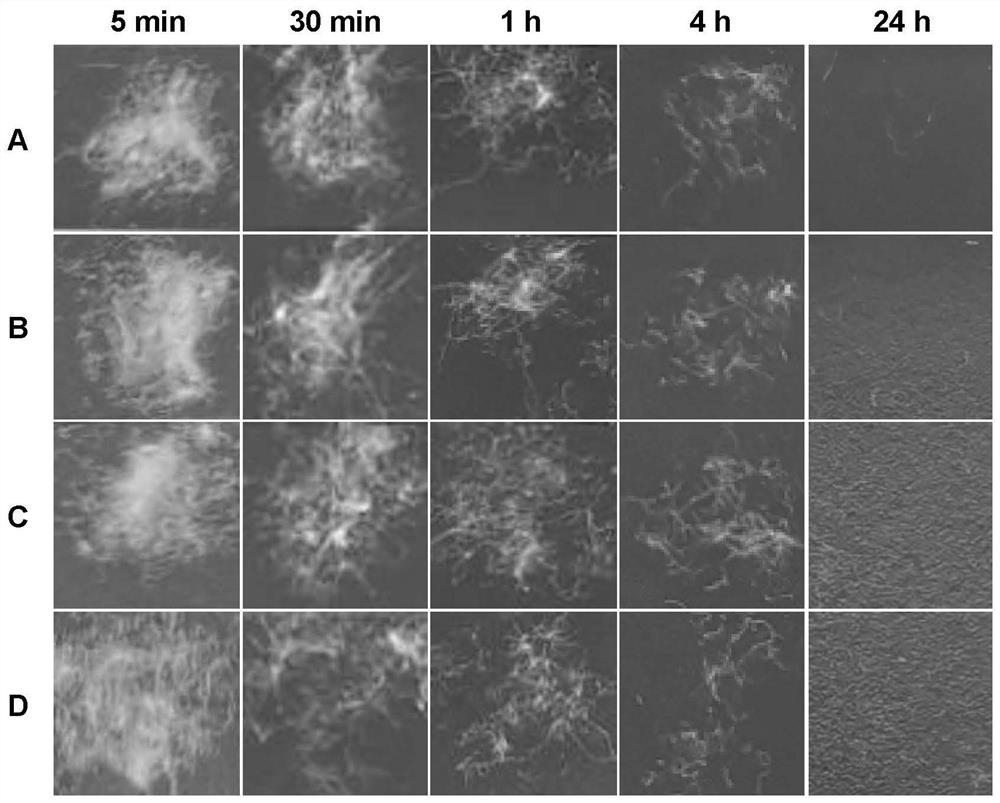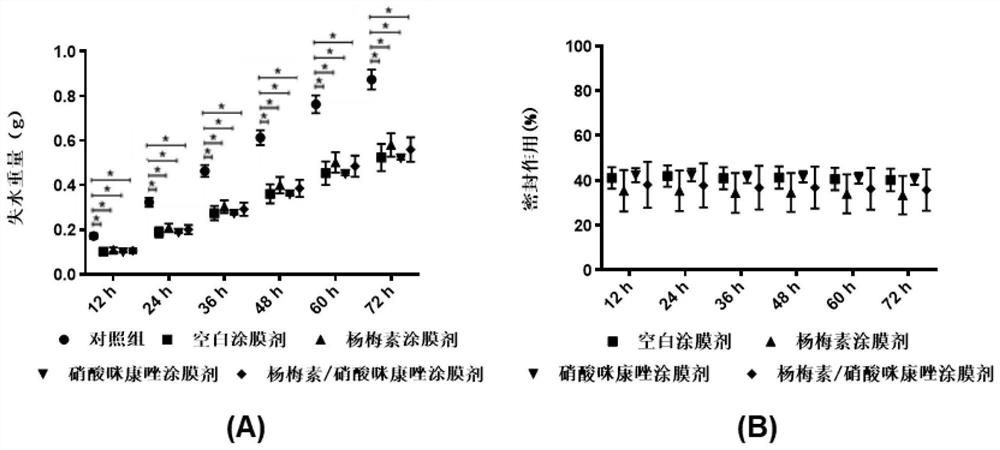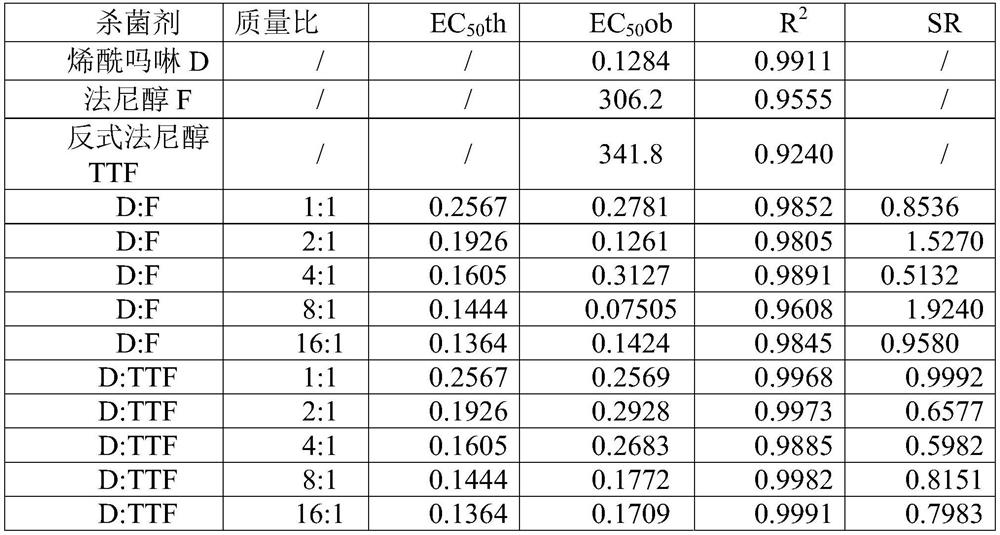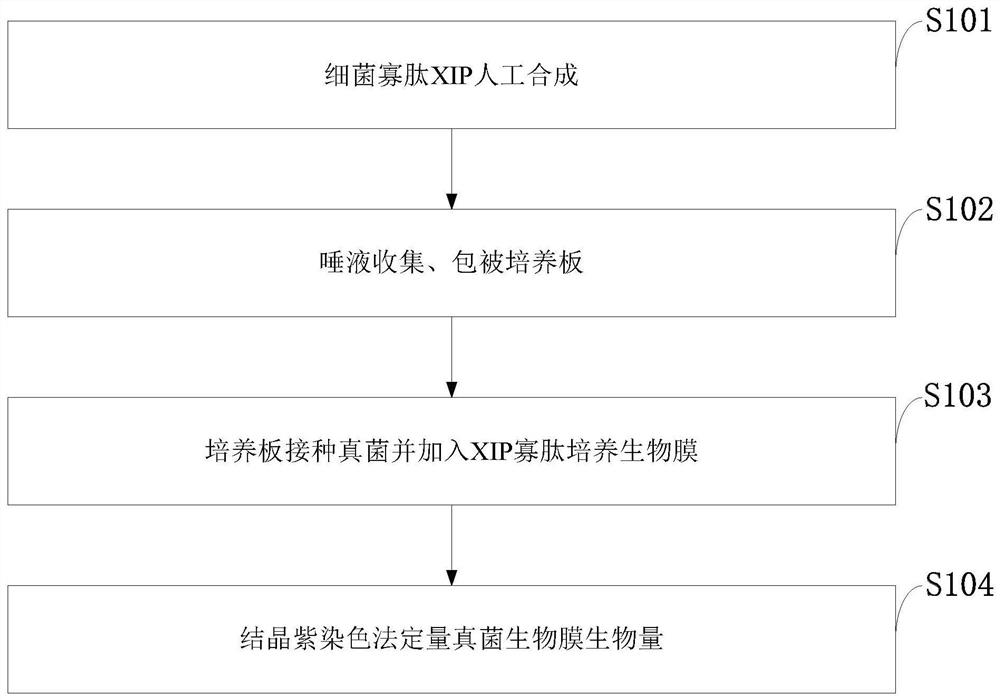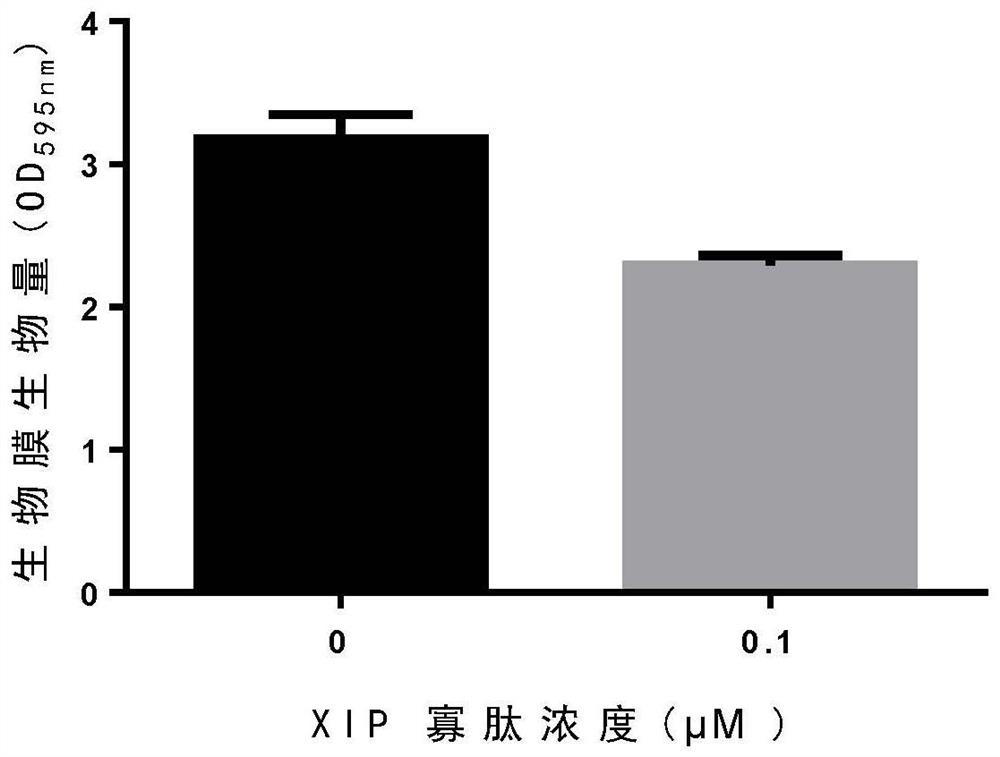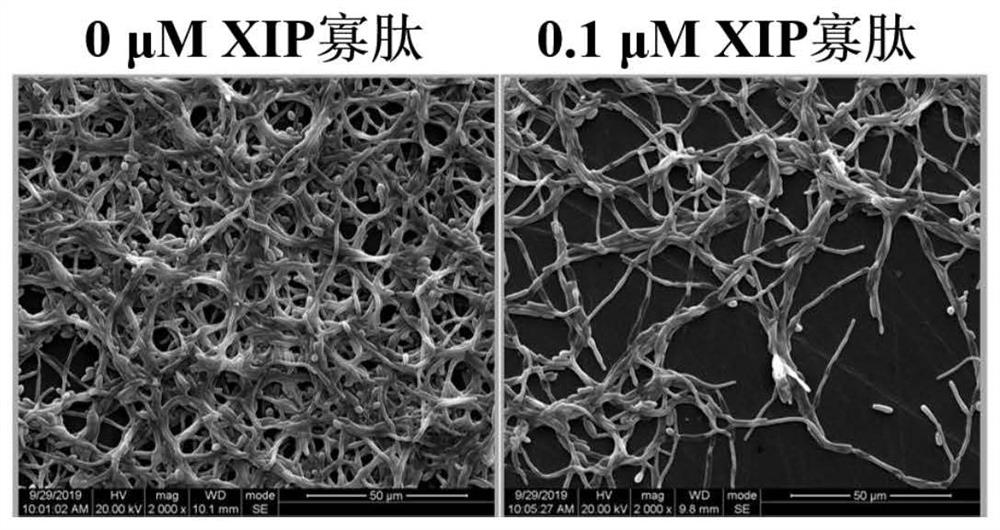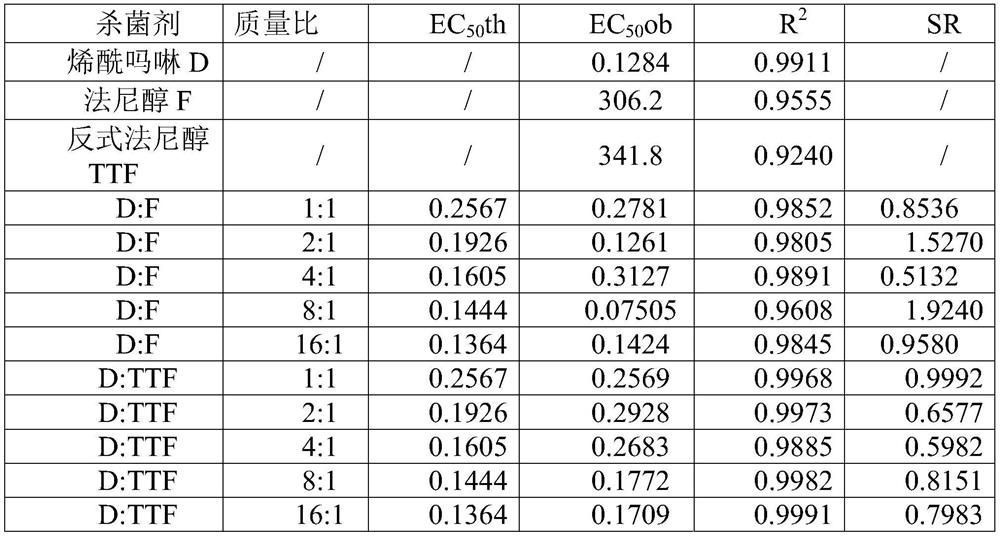Patents
Literature
Hiro is an intelligent assistant for R&D personnel, combined with Patent DNA, to facilitate innovative research.
33 results about "Fungal biofilm" patented technology
Efficacy Topic
Property
Owner
Technical Advancement
Application Domain
Technology Topic
Technology Field Word
Patent Country/Region
Patent Type
Patent Status
Application Year
Inventor
Antimicrobial compositions
ActiveUS20150342848A1Inhibits biofilm formationAntibacterial agentsCosmetic preparationsMedicineDeodorant
An anti-microbial composition, comprising a chelator (such as EDTA and its salts), and a transport enhancer (such as Methyl Sufonyl Methane; MSM) is provided. Together, the combination of the two substances unexpectedly and beneficially inhibits bacterial or fungal biofilms when administered to an area of microbial infection. Preferred formulations include spray, lotion, solution, gel, cream, ointment, soap, deodorant, surgical rinse, or dental rinse.
Owner:LIVIONEX
Compositions and methods for enzymatic detachment of bacterial and fungal biofilms
InactiveUS7294497B2Reduce expressionLower Level RequirementsAntibacterial agentsAntimycoticsBacteroidesN acetylglucosaminidase
Isolated nucleic acid sequences and amino acid sequences for soluble, β-N-acetylglucosaminidase or active fragments or variants thereof which promote detachment of bacterial cells from a biofilm are provided. An isolated mutant bacteria which forms biofilm colonies which tightly adhere to surface but which are unable to release cells into the medium or spread over the surface is also provided. In additions, methods are described for modulating detachment of bacterial cells from biofilm by mutating soluble,β-N-acetylglucosamimidase or altering its expression or activity are also provided. Also provided are compositions, methods and devices for preventing, inhibiting and treating bacterial infections.
Owner:NEW JERSEY UNIVESITY OF MEDICINE & DENTISTRY OF
Compositions and methods for enzymatic detachment of bacterial and fungal biofilms
ActiveUS20060246049A1Avoid spreadingReduce expressionAntibacterial agentsAntimycoticsN acetylglucosaminidaseMicrobiology
Isolated nucleic acid sequences and amino acid sequences for soluble, β-N-acetylglucosaminidase or active fragments or variants thereof which promote detachment of bacterial cells from a biofilm are provided. An isolated mutant bacteria which forms biofilm colonies which tightly adhere to surface but which are unable to release cells into the medium or spread over the surface is also provided. In additions, methods are described for modulating detachment of bacterial cells from biofilm by mutating soluble,β-N-acetylglucosamimidase or altering its expression or activity are also provided. Also provided are compositions, methods and devices for preventing, inhibiting and treating bacterial infections.
Owner:NEW JERSEY UNIVESITY OF MEDICINE & DENTISTRY OF
Antimicrobial compositions
InactiveUS20170215417A1Inhibits biofilm formationAntibacterial agentsCosmetic preparationsMedicineDeodorant
An anti-microbial composition, comprising a chelator (such as EDTA and its salts), and a transport enhancer (such as Methyl Sufonyl Methane; MSM) is provided. Together, the combination of the two substances unexpectedly and beneficially inhibits bacterial or fungal biofilms when administered to an area of microbial infection. Preferred formulations include spray, lotion, solution, gel, cream, ointment, soap, deodorant, surgical rinse, or dental rinse.
Owner:LIVIONEX INC
Inhibition and treatment of biofilms
InactiveUS20140079741A1Improved anti-biofilm propertyGood curative effectBiocideOrganic active ingredientsPre treatmentFungal biofilm
Treatment of a fungal biofilm on implants is via a combination of drugs and / or via the implant pre-treatment with one drug or via the combination of drugs.
Owner:KATHOLIEKE UNIV LEUVEN KU LEUVEN RES & DEV
Application of chelerythrine in preparation of antifungal biofilm medicines
InactiveCN104145966AGrowth inhibitionEfficient killingOrganic active ingredientsBiocideIsoquinolineChelerythrine
The invention relates to the technical field of medicine. Chelerythrine is isoquinoline-type alkaloid existing in plants such as celandine and macleaya cordata, and the structural formula of chelerythrine is shown in (I) described in the specification. The invention provides applications of chelerythrine in preparation of antifungal biofilm medicines, medical equipment or medical materials and the like. Experiments prove that chelerythrine has better antifungal biofilm activity both in vitro and in vivo, can effectively inhibit the growth and proliferation of fungal biofilms, and can effectively inhibit mature biofilms.
Owner:SECOND MILITARY MEDICAL UNIV OF THE PEOPLES LIBERATION ARMY
Method of inhibiting biofilm formation
Xanthochymol and garcinol, isoprenylated benzophenones purified from Garcinia xanthochymus fruits, showed multiple activities against fungal biofilms. Both compounds effectively prevented emergence of fungal germ tubes and were also cytostatic, with MICs of 1 to 3 ΞM. The compounds therefore inhibited development of hyphae and subsequent biofilm maturation. Xanthochymol treatment of developing and mature biofilms induced cell death. In early biofilm development, killing had the characteristics of apoptosis. These activities resulted in failure of biofilm maturation and hyphal death in mature biofilms. In mature biofilms, xanthochymol and garcinol caused the death of biofilm hyphae, with 50% effective concentrations (EC50s) of 30 to 50 μM. Additionally, xanthochymol-mediated killing was complementary with fluconazole against mature biofilms, reducing the fluconazole EC50 from greater than 1,024 μg per ml to 13 μg per ml.
Owner:RES FOUND THE CITY UNIV OF NEW YORK
Double-targeting composite nano-system loaded with amphotericin B and beta-1,3-glucanase, and preparation method and application of double-targeting composite nano-system
PendingCN113209031AImprove cleanlinessPowder deliveryOrganic active ingredientsChitosan nanoparticlesGlucanase
The invention belongs to the technical field of nano-drugs, and particularly relates to a double-targeting composite nano-system loaded with amphotericin B (AmpB) and beta-1,3-glucanase (Gls), and a preparation method and application of the double-targeting composite nano-system. According to the nano-system provided by the invention, Gls and AmpB are loaded by chitosan nanoparticles. The beta-1,3-glucanase modified chitosan nanoparticles are constructed for the first time, a double-targeting nano-system for fungal biofilm exopolysaccharide beta-1,3-glucan and internal thalli can be realized, and meanwhile, the beta-1,3-glucanase and the amphotericin B have a synergistic interaction effect, so that the removal capacity is improved. The double-loaded nano-system is used for damage removal of a fungal biofilm for the first time.
Owner:QINGDAO AGRI UNIV
Application of evodiamine derivative in preparation of medicine for treating superficial fungal infection
ActiveCN113768936ALightens dark red erythemaReduce hardeningOrganic active ingredientsAntimycoticsEvodiae FructusCutis
The invention provides application of an evodiamine derivative in preparation of a medicine for treating superficial fungal infection. The evodiamine derivative disclosed by the invention is prepared by taking a methyl anthranilate compound and tryptamine as initial raw materials through amine-ester exchange and a one-step ring closing reaction catalyzed by Lewis acid. The evodiamine derivative disclosed by the invention can show good antibacterial activity on three fungi, namely trichophyton rubrum, trichophyton mentagrophytes and candida albicans. Moreover, cell walls, cell membranes and organelles of fungal spores are destroyed to a certain extent, the hydrophobicity of fungal biomembranes can be influenced to a certain extent, phenomena of dark red erythema, skin hardening and generation of a large amount of scurf caused by errhysis spots of skin subjected to dermabrasion treatment can be obviously relieved, and phenomena of thickened epidermal layer of skin tissue, small-area epidermal layer necrosis, cuticle small-area parakeratosis and the like are avoided. The evodiamine derivative has low toxicity and low drug resistance and can be applied to preparation of drugs for treating the superficial fungal infection.
Owner:NANHUA UNIV
Method of destroying and preventing bacterial and fungal biofilm by amino acid infusion
Disclosed is a method comprising the administration of a 3% amino acid and 3% glycerin solution for the use of prevention and disruption of bacterial biofilms. Also disclosed is method comprising the administration of L-cysteine 0.4 g per 100 ml for the prevention and destruction of fungal biofilms.
Owner:RGT UNIV OF CALIFORNIA
Antimicrobial compositions
ActiveUS9616008B2Inhibits biofilm formationAntibacterial agentsCosmetic preparationsMedicineDeodorant
Owner:LIVIONEX
New application of pterostilbene to anti-fungal biofilm
The invention discloses new application of the pterostilbene to the anti-fungal biofilm and relates to the application of the pterostilbene to the anti-fungal biofilm therapeutic. The pterostilbene as a compound has the follow chemical structural formula. The experiments prove that the pterostilbene has good anti-fungal biofilm activity in vitro. The experimental results prove that the pterostilbene can effectively inhibit the growth and the proliferation of the fungal biofilm in vitro and can effectively inhibit the mature biofilm.
Owner:SECOND MILITARY MEDICAL UNIV OF THE PEOPLES LIBERATION ARMY
Method of inhibiting biofilm formation
InactiveUS9648876B2Avoid problemsAvoid developmentBiocideKetone active ingredientsPrenylationApoptosis
Xanthochymol and garcinol, isoprenylated benzophenones purified from Garcinia xanthochymus fruits, showed multiple activities against fungal biofilms. Both compounds effectively prevented emergence of fungal germ tubes and were also cytostatic, with MICs of 1 to 3 ΞM. The compounds therefore inhibited development of hyphae and subsequent biofilm maturation. Xanthochymol treatment of developing and mature biofilms induced cell death. In early biofilm development, killing had the characteristics of apoptosis. These activities resulted in failure of biofilm maturation and hyphal death in mature biofilms. In mature biofilms, xanthochymol and garcinol caused the death of biofilm hyphae, with 50% effective concentrations (EC50s) of 30 to 50 μM. Additionally, xanthochymol-mediated killing was complementary with fluconazole against mature biofilms, reducing the fluconazole EC50 from greater than 1,024 μg per ml to 13 μg per ml.
Owner:RES FOUND THE CITY UNIV OF NEW YORK
Amyloid hexapeptide and application thereof in broad-spectrum inhibition of bacterial and fungal biofilms
ActiveCN111040026AWill not cause drug resistanceAntibacterial agentsAntimycoticsPharmaceutical drugGram-positive bacterium
The invention relates to amyloid hexapeptide and application thereof in broad-spectrum inhibition of bacterial and fungal biofilms, and belongs to the field of biological pharmacy. The amyloid hexapeptide provided by the invention can be polymerized into amyloid fibers in vitro. The invention also provides application of the amyloid hexapeptide in preparation of drugs for inhibiting biofilm formation. The amyloid hexapeptide can be polymerized into the amyloid fibers to wrap bacteria or fungi to achieve the effect of broad-spectrum inhibition of the formation of the bacterial and fungal biofilms, including gram-positive bacteria, gram-negative bacteria and fungi, but the amyloid hexapeptide is not sterilized, has low toxicity or no toxicity to cells, and cannot cause drug resistance to bacteria. And the amyloid hexapeptide is expected to become a novel cheap drug for efficiently resisting biofilm formation.
Owner:HOSPITAL OF STOMATOLOGY SUN YAT SEN UNIV
Use of csa compounds to prevent microbial build-up or fouling of medical implants
InactiveUS20180272034A1Prevent microbial colonizationReducing fouling of the implantBiocideCatheterCompound (substance)Biological membrane
This disclosure describes the use of cationic steroidal antimicrobial (CSA) compounds to prevent microbial fouling of medical implants, including microbial fouling caused by bacterial and / or fungal biofilms. The CSAs are incorporated into the medical implants to provide effective antimicrobial properties. A medical implant includes a component formed from a polymeric material. A plurality of CSA molecules are mixed with the polymeric material so that the CSA molecules are incorporated into the structure of the medical implant as formed. A medical implant can additionally or alternatively include a lubricious coating containing CSA molecules.
Owner:BRIGHAM YOUNG UNIV
Extraction method of candida fungal biofilm extracellular matrix
InactiveCN108373979AImprove extraction efficiencyFungiMicroorganism based processesMonilinia laxaCell-Extracellular Matrix
An extraction method of a candida fungal biofilm extracellular matrix includes: preparing a film forming guide tube piece, putting the film forming guide tube piece into a disodium hydrogen phosphate-sodium dihydrogen phosphate buffer solution or a Tris-HCl buffer solution, and sequentially performing vortex vibration and ultrasonic treatment to obtain suspension liquid; subjecting the suspensionliquid and ion exchange resin to shaking table incubation in a container; using a 500mM NACl solution to elute the ion exchange resin obtained in the third step to obtain elution liquid, subjecting the elution liquid to shaking table action for 1.5-2.5 hours, filtering the elution liquid through a 0.22-micron microporous filter membrane, and centrifuging to obtain supernatant, namely candida fungal biofilm extracellular matrix extract. When the extraction method assisted by the ion exchange resin is applied to common candida fungal biofilm EPS (extracellular polymeric substances) extraction, high extraction efficiency can be achieved.
Owner:ANHUI UNIVERSITY OF TRADITIONAL CHINESE MEDICINE
Methods for Inhibiting the Development, Formation and/or Maturation of Bacterial and Fungal Biofilms
InactiveUS20160051569A1Enhance biofilm developmentInhibit synthesisSalicyclic acid active ingredientsBiocideBacteroidesEnzyme system
The present disclosure describes compositions and methods for inhibiting the development, formation and / or maturation of bacterial and fungal biofilms. The biofilm inhibiting compositions include non-steroidal anti-inflammatory drugs (NSAIDs) as APIs, and ethoxylated oil as a solubilizing agent. The ethoxylated oils employed within the biofilm inhibiting compositions includes between 9 and 24 ethoxylations / molecules. The NSAIDs agents within the biofilm inhibiting compositions inhibit the syntheses of prostaglandins by blocking the cyclooxygenase (COX) enzyme system due to the analgesic, anti-inflammatory, and antipyretic properties of the NSAIDs. The biofilm inhibiting compositions inhibit the cyclooxygenase isoenzymes required for prostaglandin formation, thereby preventing the colonization of fungi or bacteria as well as the formation of biofilms.
Owner:PROFESSIONAL COMPOUNDING CENTS OF AMERICA PCCA
Preparation method of fungal Candida biofilm flow model
PendingCN108795689AEasy to operateImprove stabilityBioreactor/fermenter combinationsFungiCandida famataMicrobiology
The invention discloses a preparation method of a fungal Candida biofilm flow model. The preparation method comprises the following steps: establishing a fungal biofilm flow model device, culturing afungal culture, incubating a fungal biofilm, evaluating the fungal biofilm and performing scanning electron microscopy. The preparation method of the fungal Candida biofilm flow model has the advantages of easiness in operation and high stability and reproducibility.
Owner:ANHUI UNIVERSITY OF TRADITIONAL CHINESE MEDICINE
Methods for inhibiting the development, formation and/or maturation of bacterial and fungal biofilms
InactiveUS20170035786A1Potent immunomodulatorsImprove adhesionPharmaceutical delivery mechanismOil/fats/waxes non-active ingredientsBacteroidesEnzyme system
Owner:PROFESSIONAL COMPOUNDING CENTS OF AMERICA PCCA
Application of sanguinarine in the preparation of antifungal biofilm drugs
The invention relates to the application of sanguinarine and pharmaceutically acceptable salts thereof in the preparation of antifungal biofilm drugs, medical equipment or medical materials, the fungus is Candida, Cryptococcus neoformans or Aspergillus, the antifungal Biofilm is to inhibit the growth and proliferation / formation of fungal biofilm or to inhibit / destroy the formed fungal biofilm. The present invention also relates to methods for non-therapeutic inhibition of fungal biofilms in vitro using sanguinarine. The compound sanguinarine used in the present invention can effectively inhibit the growth of fungal film even at a low concentration, or inhibit the mature biofilm, and the minimum effective application concentration is only 1.25? μmol / L, can be used in clinical antifungal biofilm.
Owner:SECOND MILITARY MEDICAL UNIV OF THE PEOPLES LIBERATION ARMY
Formulation based on vitamin e or an ester thereof for treating bacterial and fungal biofilms
InactiveUS20200360339A1Reduce formationAntibacterial agentsOrganic active ingredientsCarboxylic acidMicrobiology
Formulation for topical use based on vitamin E or an ester thereof for use in removing, reducing or inhibiting a bacterial and / or fungal biofilm, wherein said ester of vitamin E is an ester with a carboxylic acid of formula R—COOH, in which R is an alkyl radical having from 1 to 19 carbon atoms, or an alkenyl or alkynyl having from 2 to 19 carbon atoms.
Owner:BIO LO GA
Device and method for treating phenol-containing coal chemical industry wastewater by advanced oxidation method in cooperation with immobilized white-rot fungi
PendingCN110894130ARapid oxidative degradationEasy to degradeWater treatment parameter controlWater treatment compoundsWater storage tankTreated water
The invention provides a device and a method for treating phenol-containing coal chemical industry wastewater by advanced oxidation method in cooperation with immobilized white-rot fungi. The method comprises the following steps: carrying out pre-oxidizing on phenol-containing coal chemical industry wastewater with residual O3 in a water storage tank, and then conveying the treated wastewater intoa venturi gas-liquid mixer through a sewage pipe and a wastewater inlet pump; reacting O2 into O3, and then conveying the obtained O3 into the venturi gas-liquid mixer, conveying H2O2 into the venturi gas-liquid mixer through a peristaltic metering pump and an H2O2 injection pipeline to react with oxidizing agent O3, and carrying out oxidative degradation on refractory toxic substances such as phenols in the coal chemical industry wastewater with free radicals generated in the gas-liquid mixing process; carrying out gas-liquid separation in a gas-liquid separation tank, conveying an obtainedproduct into a white-rot fungus bio-membrane reactor, conveying unreacted O3 back to an untreated wastewater storage tank through a residual O3 aeration pipe loop for pre-oxidizing on the wastewater;conveying wastewater treated in the white-rot fungi bio-membrane reactor into a sedimentation tank for standing separation, so that the treated water reaches the discharge standard of coal chemical industry wastewater and can be safely discharged or recycled.
Owner:INNER MONGOLIA UNIV OF SCI & TECH
Application of pterostilbene in antifungal biofilm medicine
The invention discloses new application of the pterostilbene to the anti-fungal biofilm and relates to the application of the pterostilbene to the anti-fungal biofilm therapeutic. The pterostilbene as a compound has the follow chemical structural formula. The experiments prove that the pterostilbene has good anti-fungal biofilm activity in vitro. The experimental results prove that the pterostilbene can effectively inhibit the growth and the proliferation of the fungal biofilm in vitro and can effectively inhibit the mature biofilm.
Owner:SECOND MILITARY MEDICAL UNIV OF THE PEOPLES LIBERATION ARMY
Method of destroying and preventing bacterial and fungal biofilm by amino acid infusion
Disclosed is a method comprising the administration of a 3% amino acid and 3% glycerin solution for the use of prevention and disruption of bacterial biofilms. Also disclosed is method comprising the administration of L-cysteine 0.4 g per 100 ml for the prevention and destruction of fungal biofilms.
Owner:RGT UNIV OF CALIFORNIA
Amphotericin b and beta-1,3-glucanase loaded bi-functional nano-system with both targets, preparation method and application thereof
PendingUS20220346373A1Effectively skilledInhibits biofilm formationBiocideOrganic active ingredientsChitosan nanoparticlesGlucanase
The invention belongs to the technical field of nano-drugs, and in particular, relates to an amphotericin B (AmpB) and β-1,3-glucanase (Gls) loaded bi-functional nano-system with both targets, a preparation method and an application thereof. The nano-system provided by the invention comprises Gls and AmpB loaded chitosan nanoparticles. The β-1,3-glucanase modified chitosan nanoparticles are constructed for the first time, which can achieve a bi-functional nano-system both targeting fungal biofilm exopolysaccharide β-1,3-glucan and internal thalli; meanwhile, the β-1,3-glucanase and the amphotericin B have a synergistic interaction effect, so that the removal capacity is improved. The double-loaded nano-system is used for fungal biofilm damage removal for the first time.
Owner:QINGDAO AGRI UNIV
Myricetin/azole medicine combined liniment for preventing infection of outer surface of percutaneous catheterization catheter and application of liniment
ActiveCN112826810APrevent intrusionAvoid infectionOrganic active ingredientsAntimycoticsFilm coatingPharmaceutics
The invention discloses a myricetin / azole medicine combined liniment for preventing infection of the outer surface of a percutaneous catheterization catheter and application of the liniment, and belongs to the technical field of pharmaceutics. The myricetin has the activity of inhibiting the formation of a fungal Candida albicans biofilm, the myricetin is combined with the azole compound to help the azole compound break through a fungal biofilm barrier, and the synergistic effect of the myricetin and the azole compound can significantly enhance the antibacterial effect. The film coating agent can be quickly dried to form a transparent film after being applied to the skin surface, is not limited by the shape and position of a medication part, plays a physical protection role, loads myricetin and miconazole nitrate, can simultaneously avoid invasion and infection of pathogens in the external environment and the skin, is convenient to use, and the compound is expected to be used for preventing clinical catheter-related infection.
Owner:XI AN JIAOTONG UNIV +1
A kind of pesticide composition for preventing and treating litchi frost blight with synergistic effect
ActiveCN113661987BImprove the effect of prevention and controlInhibition formationBiocideFungicidesFungicideLychee fruit
The invention provides a pesticide composition for preventing and treating litchi frost blight with synergistic effect. The invention prepares a composition for preventing and treating litchi frost blight from farnesol and dimethomorph, and farnesol can inhibit the growth of fungal biofilm. Formation and maturation, induce fungal cell death, single use of farnesol has basically no obvious control effect on litchi frost blight, carboxylic acid amide fungicide dimethomorph is a registered agent for the prevention and treatment of litchi frost blight, when adding farnesol After alcohol, its control effect was significantly improved.
Owner:ENVIRONMENT & PLANT PROTECTION INST CHINESE ACADEMY OF TROPICAL AGRI SCI
Oligopeptide used for inhibiting fungal biofilm and application of oligopeptide
ActiveCN112321679ASimple structureEasy to manufactureAntimycoticsPeptide/protein ingredientsAntifungal drugAnti fungal
The invention belongs to the technical field of antifungal drugs, and discloses an oligopeptide used for inhibiting a fungal biofilm and application of the oligopeptide. The oligopeptide used for inhibiting the fungal biofilm is a bacterial secretion product, and is used for inhibiting formation of the fungal biofilm; a method for applying the oligopeptide to inhibit the fungal biofilm includes the following steps: artificially synthesizing bacterial oligopeptide XIP; collecting saliva-coating a biofilm culture plate; inoculating culture plate with fungi and adding the XIP oligopeptide to culture the biofilm; and quantifying the biomass of the fungal biofilm by a crystal violet staining method. According to the invention, the XIP oligopeptide secreted by streptococcus mutans is artificially synthesized; the XIP oligopeptide is added in the candida albicans biofilm forming process; and the inhibition effect of the XIP oligopeptide on candida albicans biofilm formation is quantitativelydetected by using the crystal violet staining method after culture is performed for 24h. The oligopeptide generated by bacteria acts on the candida albicans biofilm, so that the formation of the candida albicans biofilm is effectively inhibited.
Owner:SICHUAN UNIV
Pesticide composition with synergistic effect and for preventing and treating litchi downy blight
ActiveCN113661987AImprove the effect of prevention and controlInhibition formationBiocideFungicidesBiotechnologyLychee fruit
The invention provides a pesticide composition with the synergistic effect and for preventing and treating litchi downy blight. The composition for preventing and treating the litchi downy blight is prepared from farnesol and dimethomorph, the farnesol can inhibit formation and maturation of fungal biofilms and induce death of fungal cells, when the farnesol is singly used, the farnesol basically has no obvious control effect on the litchi downy blight, and the carboxylic acid amide bactericide dimethomorph is used as a registered medicament for controlling the litchi downy blight, so that the control effect is obviously improved after the farnesol is added.
Owner:ENVIRONMENT & PLANT PROTECTION INST CHINESE ACADEMY OF TROPICAL AGRI SCI
Amyloid hexapeptide and its application in broad-spectrum inhibition of bacterial and fungal biofilms
ActiveCN111040026BWill not cause drug resistanceAntibacterial agentsAntimycoticsAmyloid likeAmyloid fibers
The invention relates to amyloid hexapeptide and its broad-spectrum application of inhibiting bacteria and fungi biofilm, and belongs to the field of biopharmaceuticals. The amyloid hexapeptide provided by the invention can be polymerized into amyloid fibrils in vitro. The present invention also provides the application of the amyloid hexapeptide in the preparation of medicines for inhibiting the formation of biofilms. The amyloid hexapeptide of the present invention can wrap bacteria or fungi by being polymerized into amyloid fibers, and play a broad-spectrum role in inhibiting the formation of bacteria and fungal biofilms, including Gram-positive bacteria, Gram-negative bacteria and fungi, but Amyloid hexapeptide is not bactericidal, has little or no toxicity to cells, and will not cause bacterial drug resistance. It is expected to become a new type of cheap drug with high efficiency against biofilm formation.
Owner:HOSPITAL OF STOMATOLOGY SUN YAT SEN UNIV
Features
- R&D
- Intellectual Property
- Life Sciences
- Materials
- Tech Scout
Why Patsnap Eureka
- Unparalleled Data Quality
- Higher Quality Content
- 60% Fewer Hallucinations
Social media
Patsnap Eureka Blog
Learn More Browse by: Latest US Patents, China's latest patents, Technical Efficacy Thesaurus, Application Domain, Technology Topic, Popular Technical Reports.
© 2025 PatSnap. All rights reserved.Legal|Privacy policy|Modern Slavery Act Transparency Statement|Sitemap|About US| Contact US: help@patsnap.com
